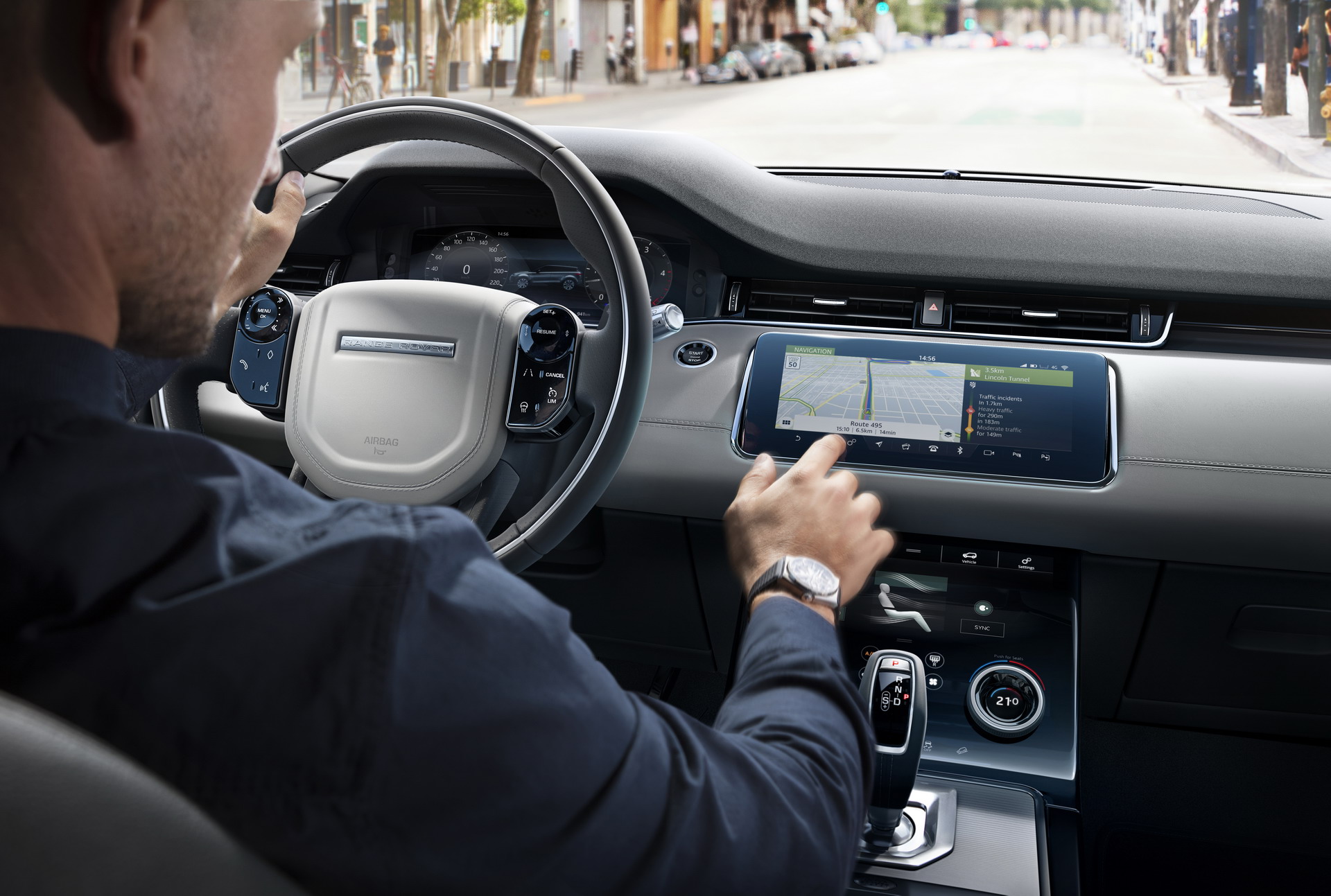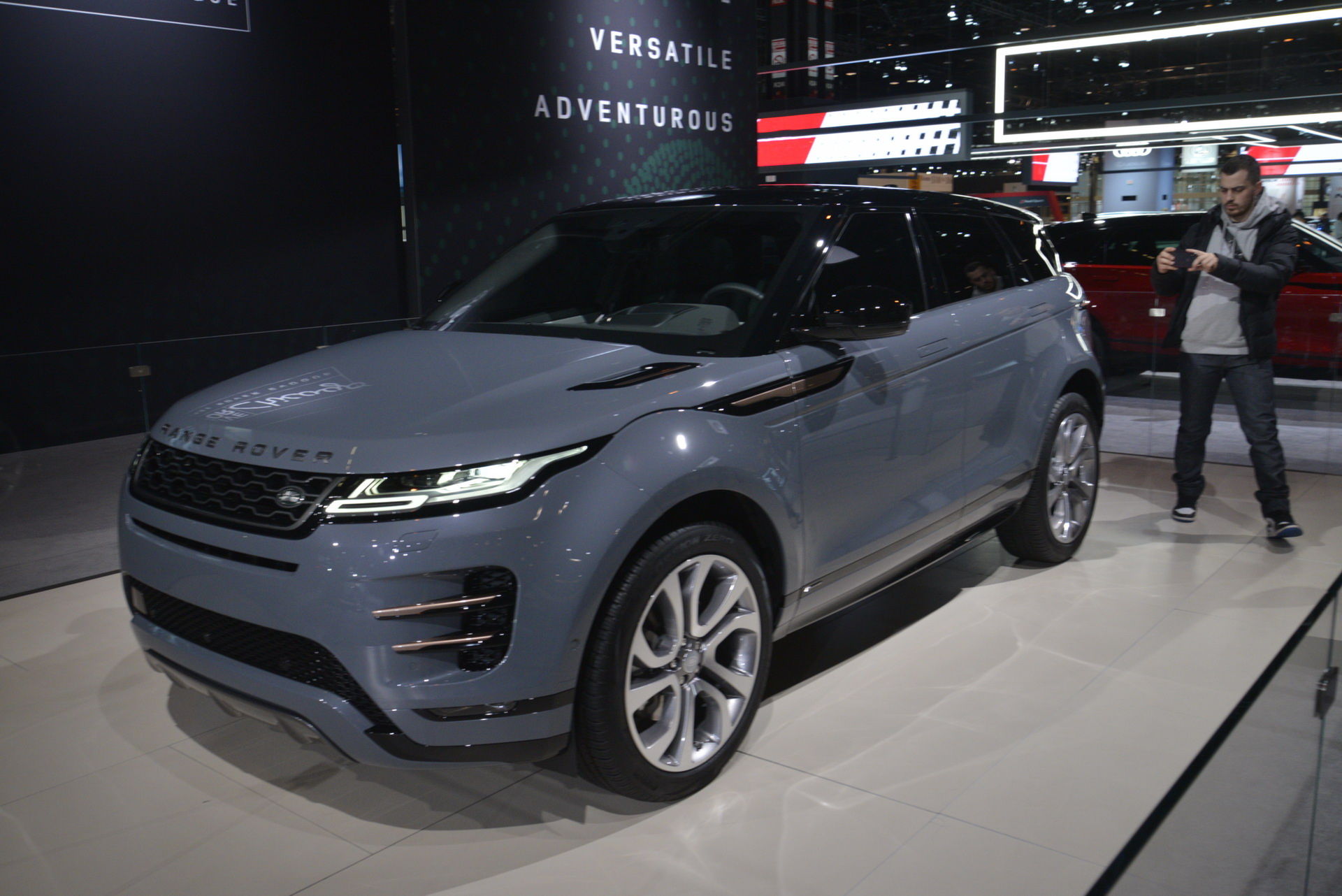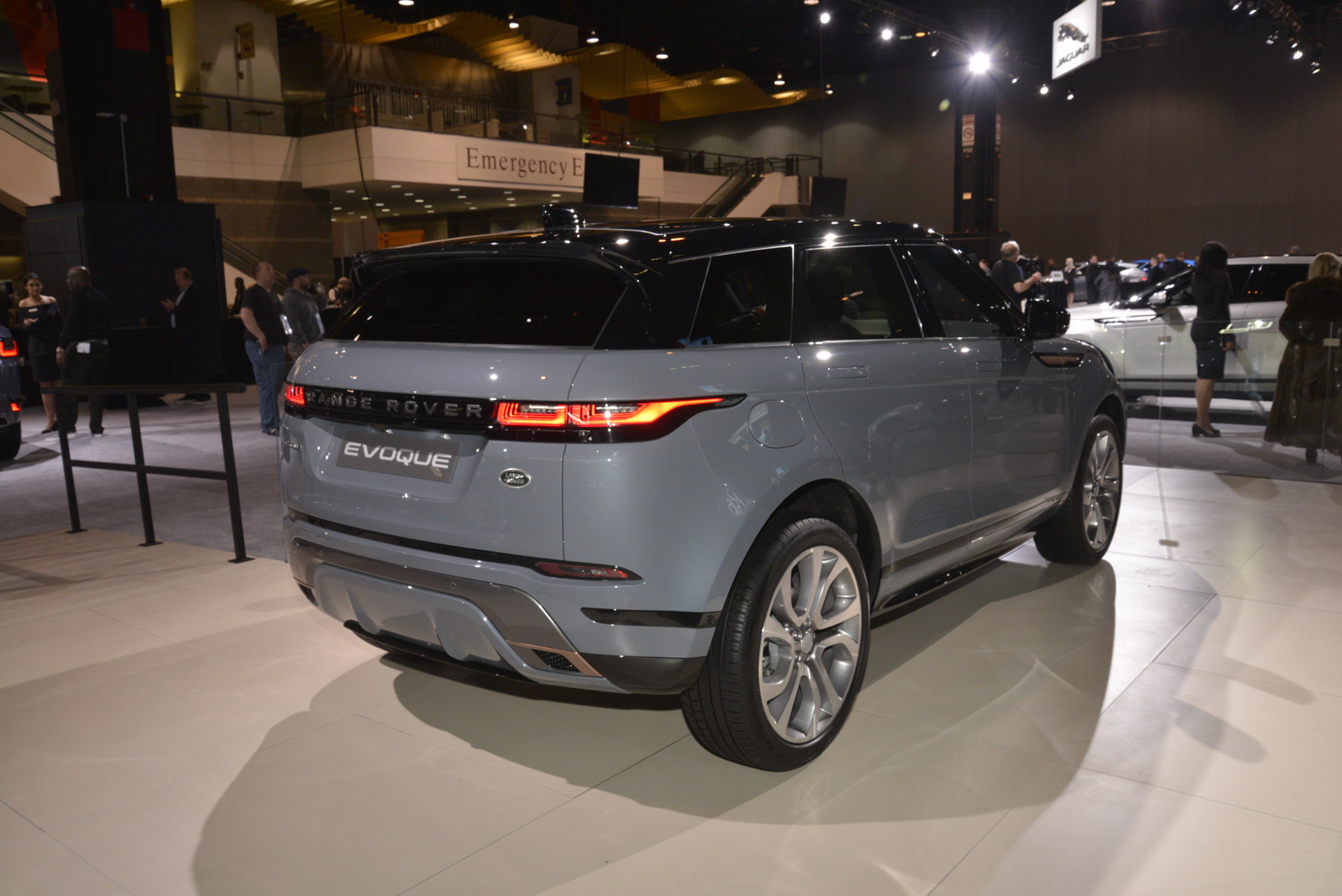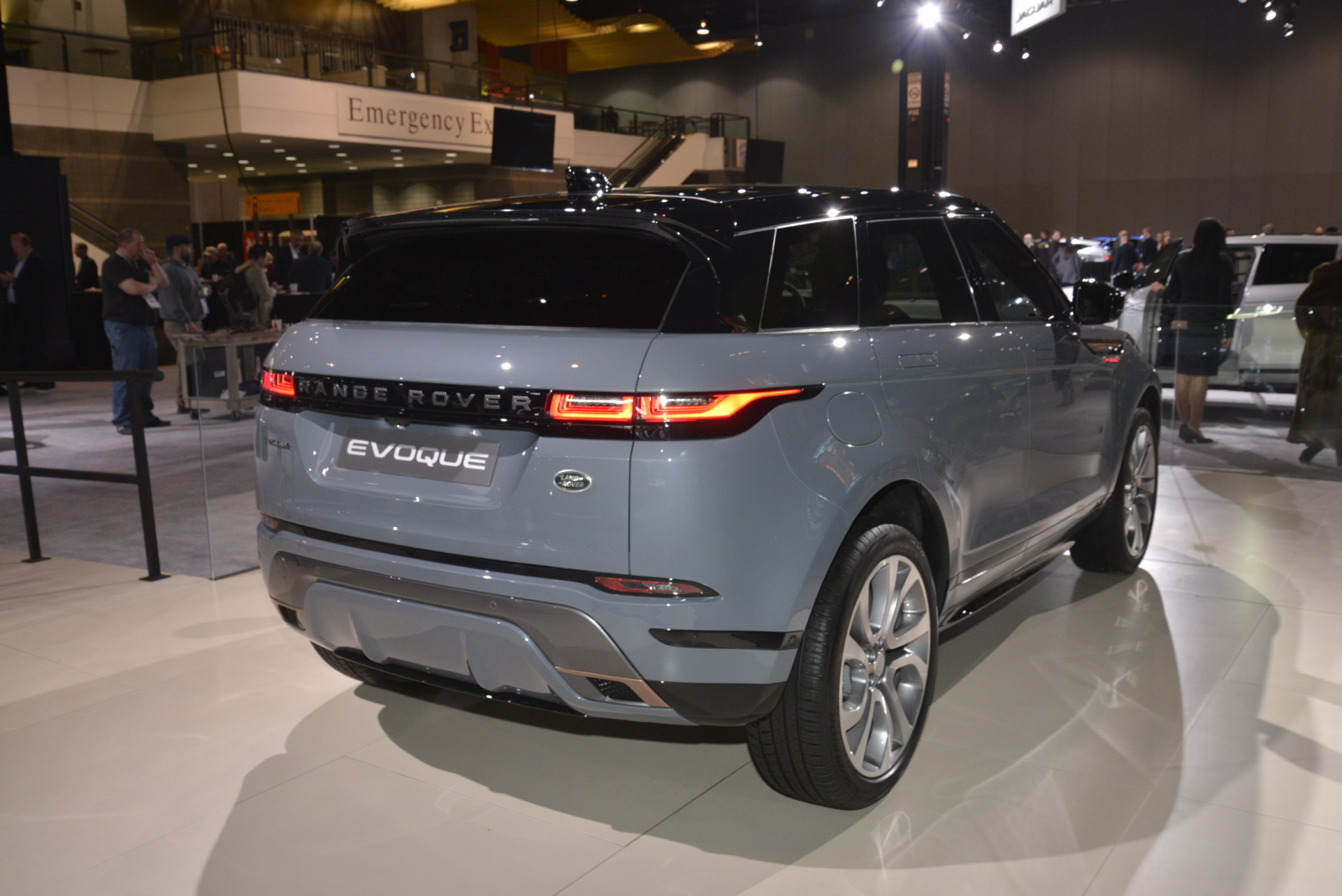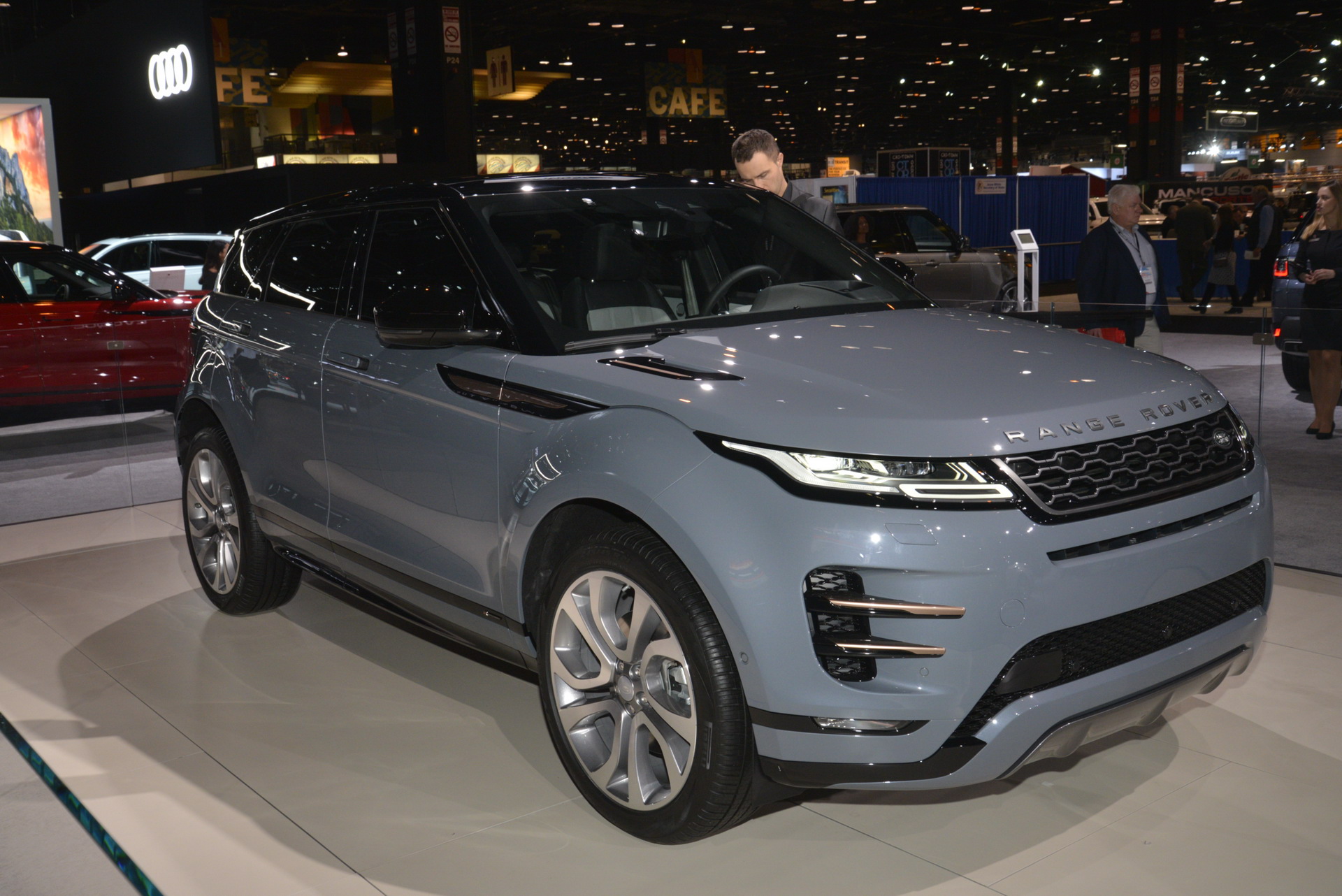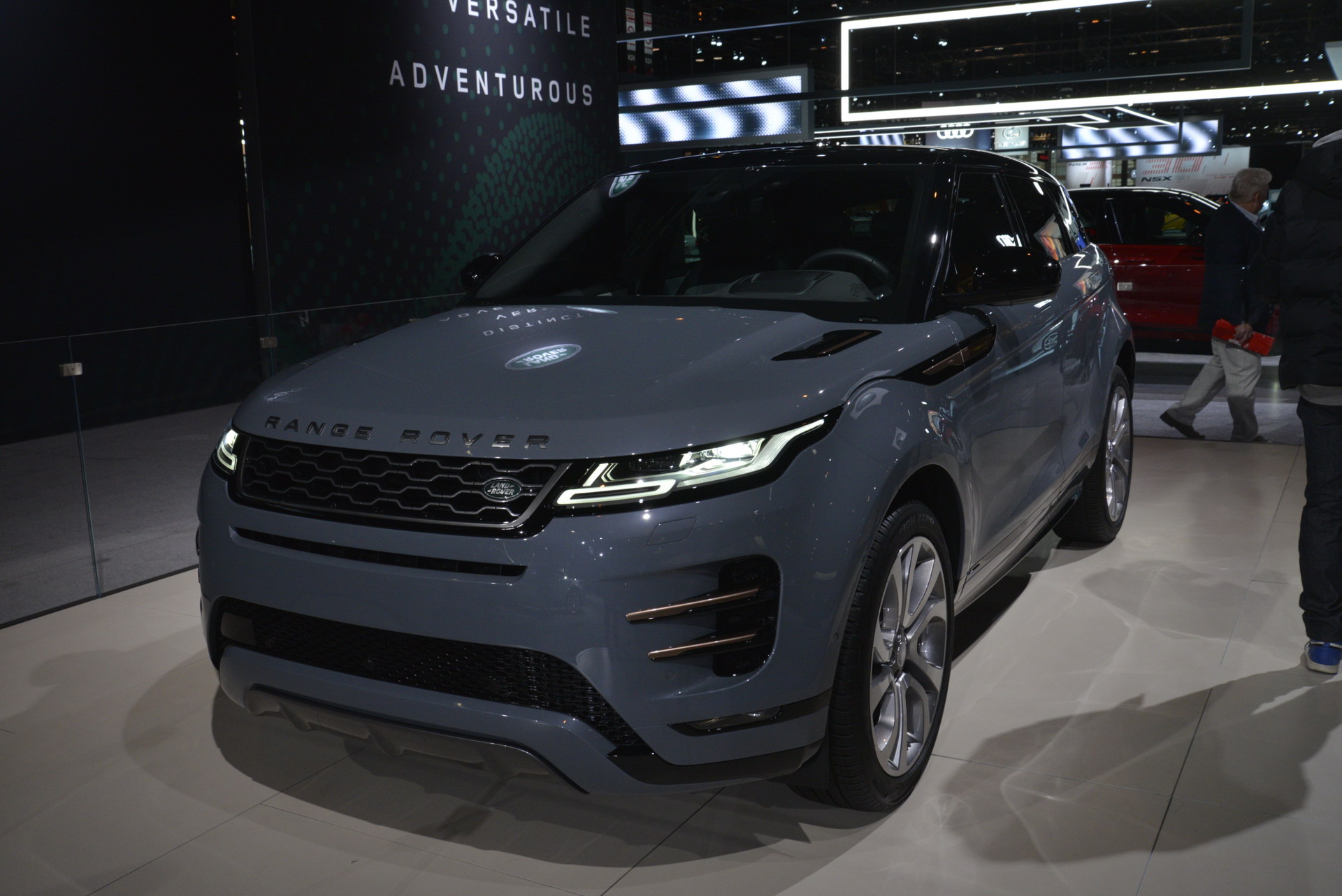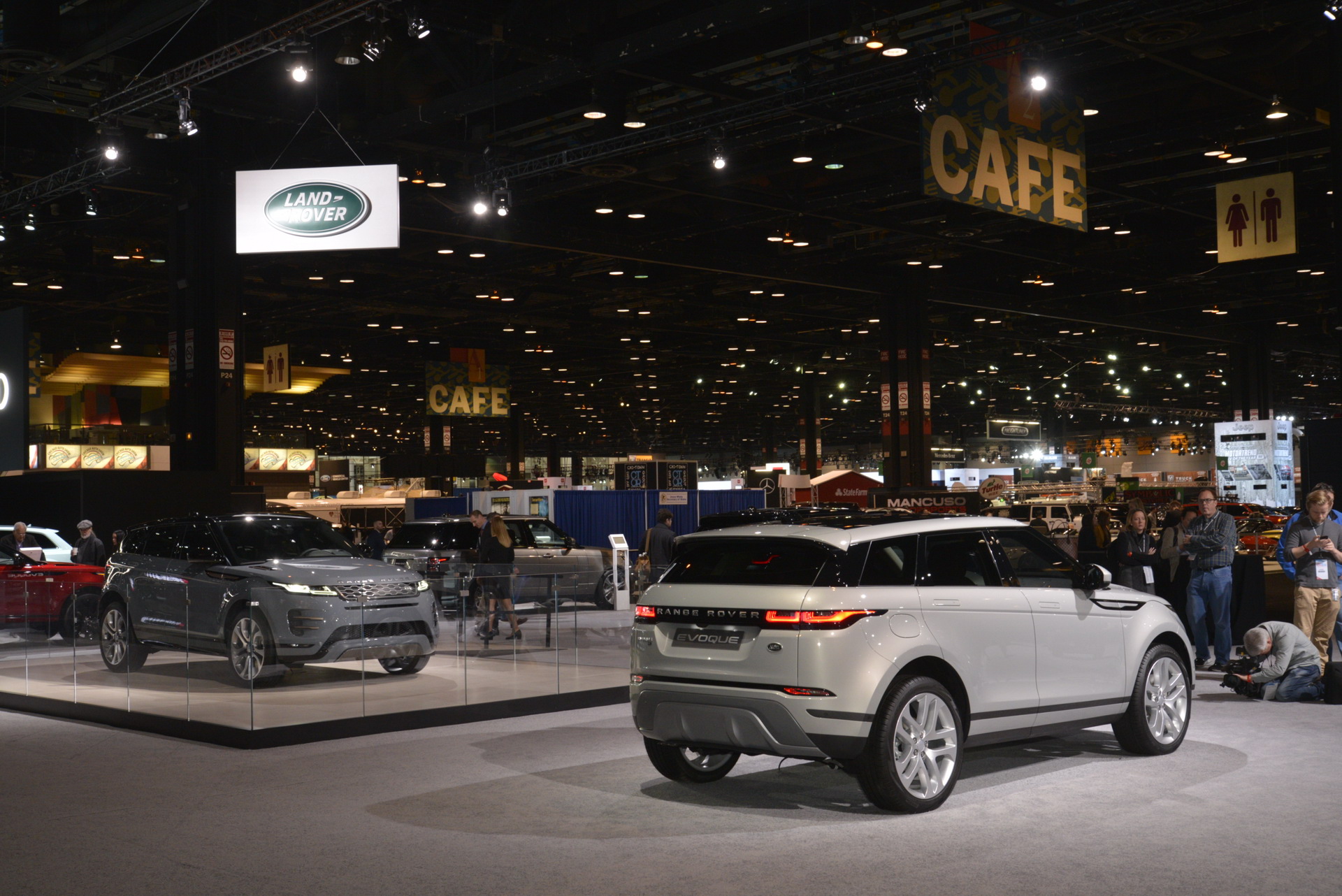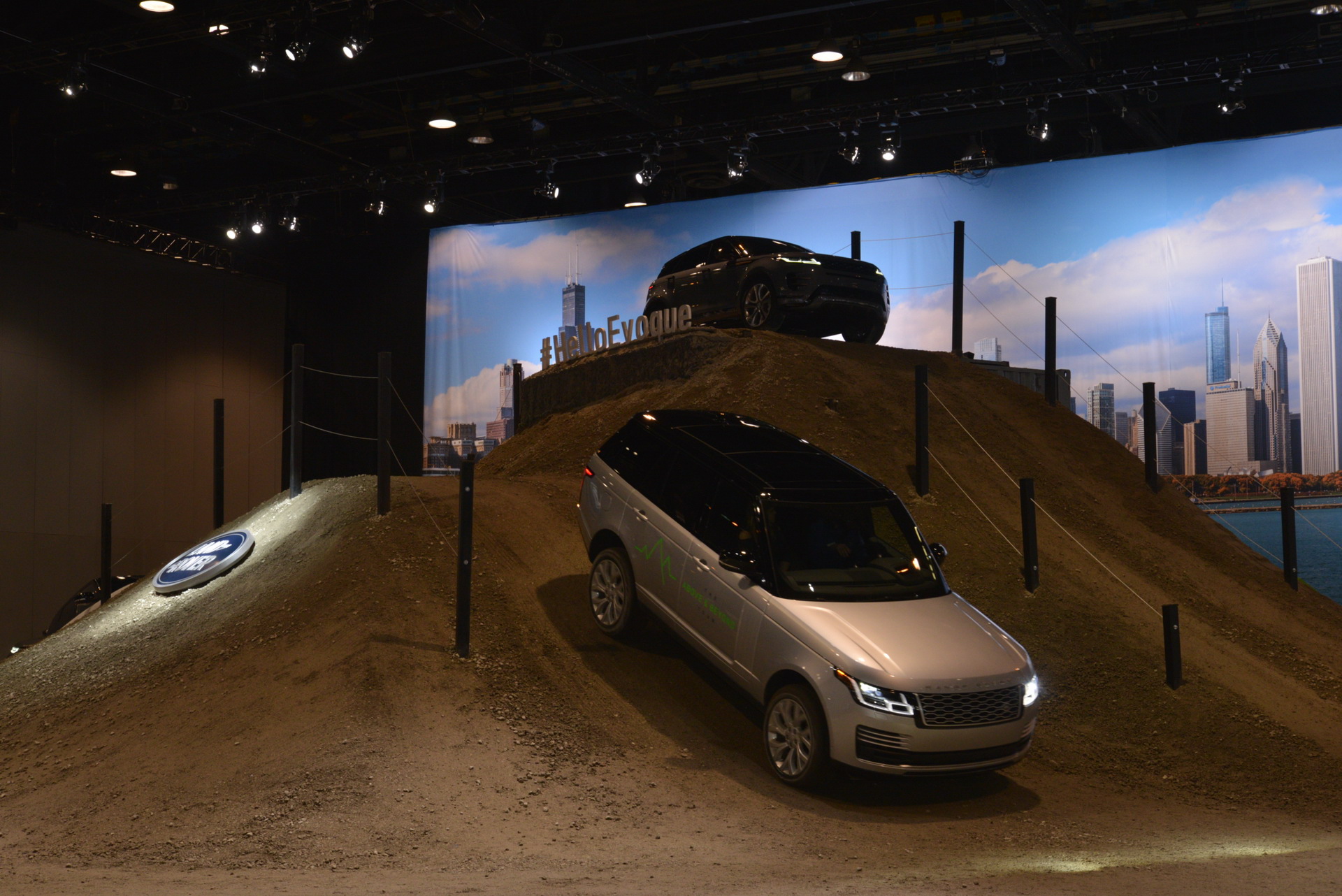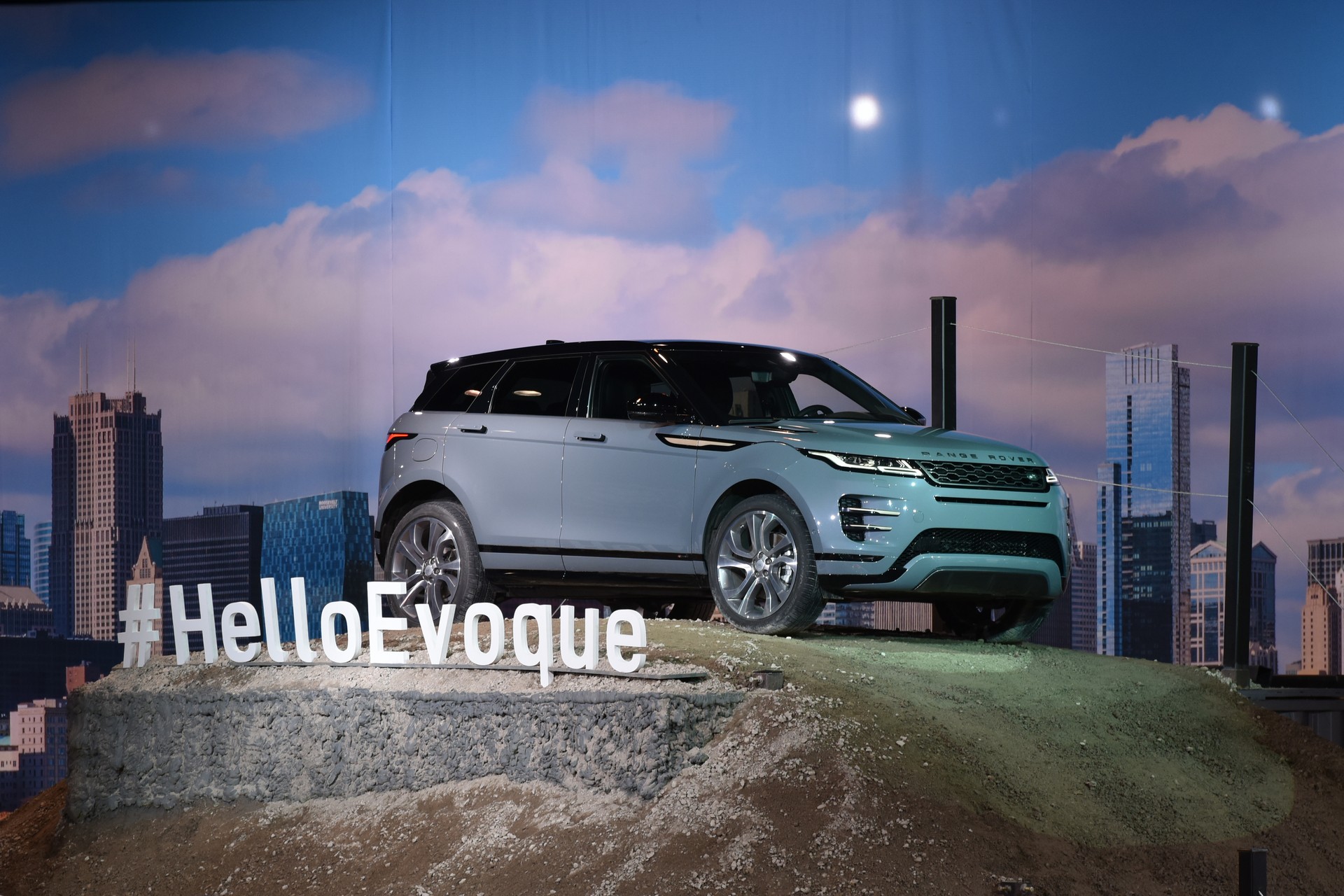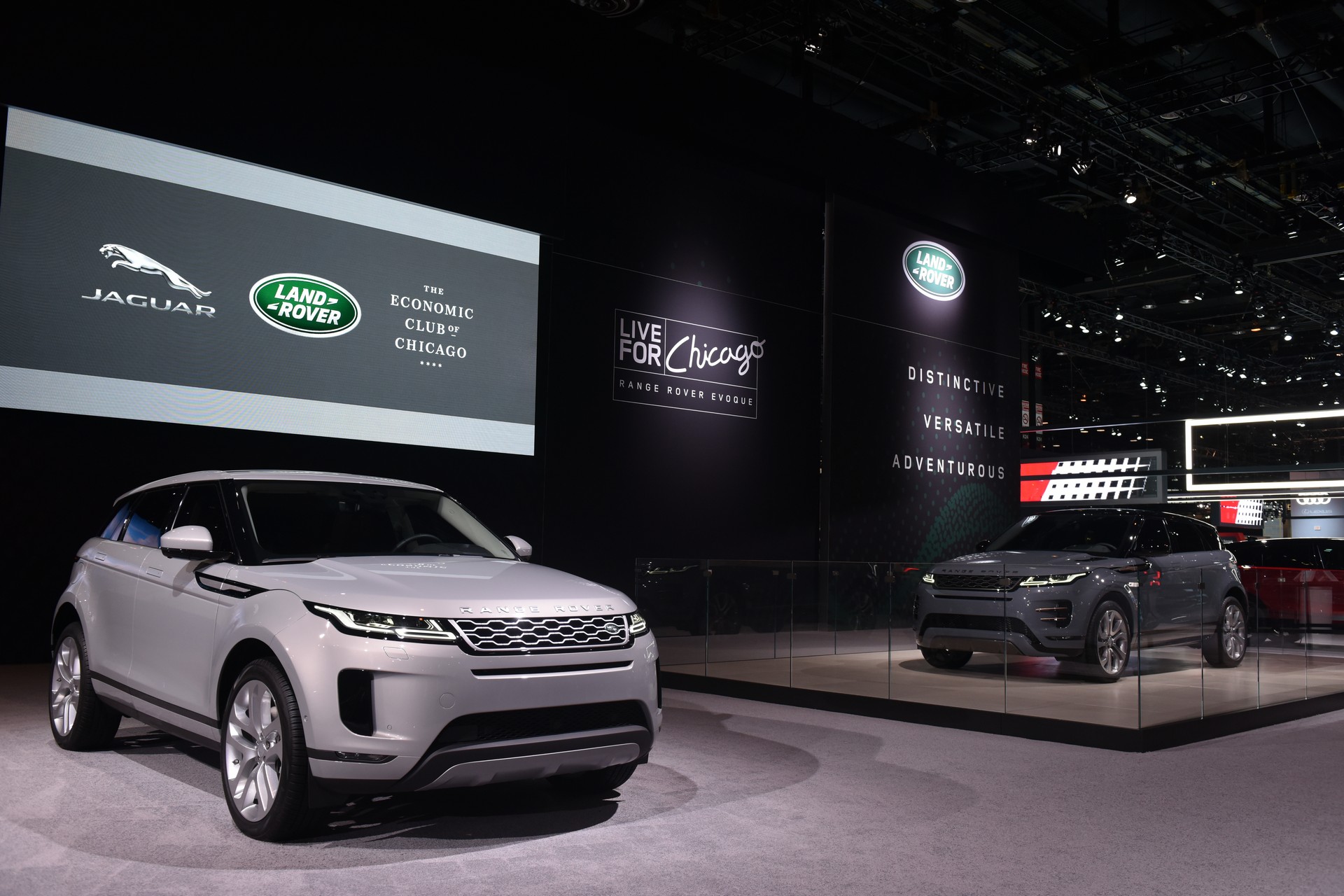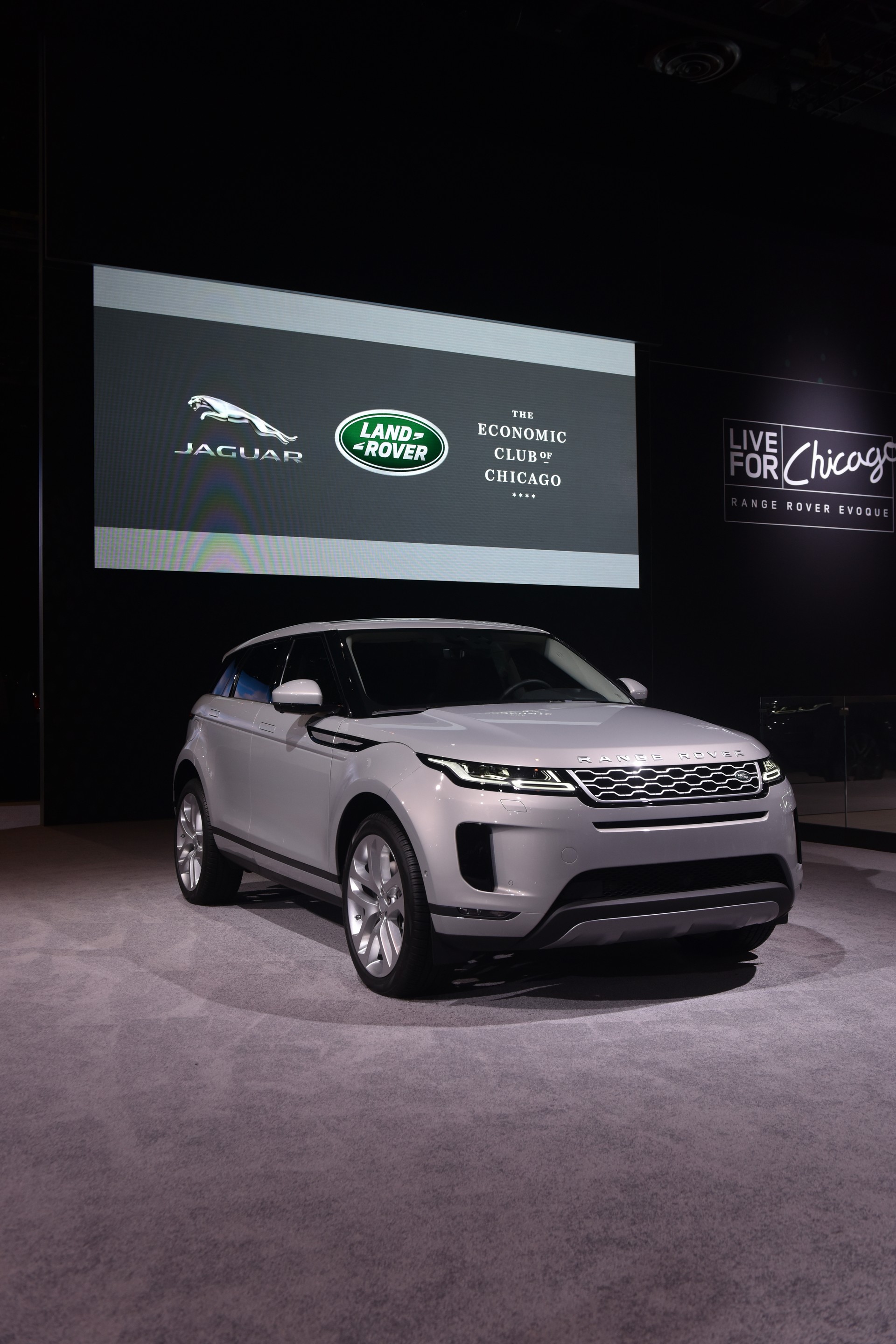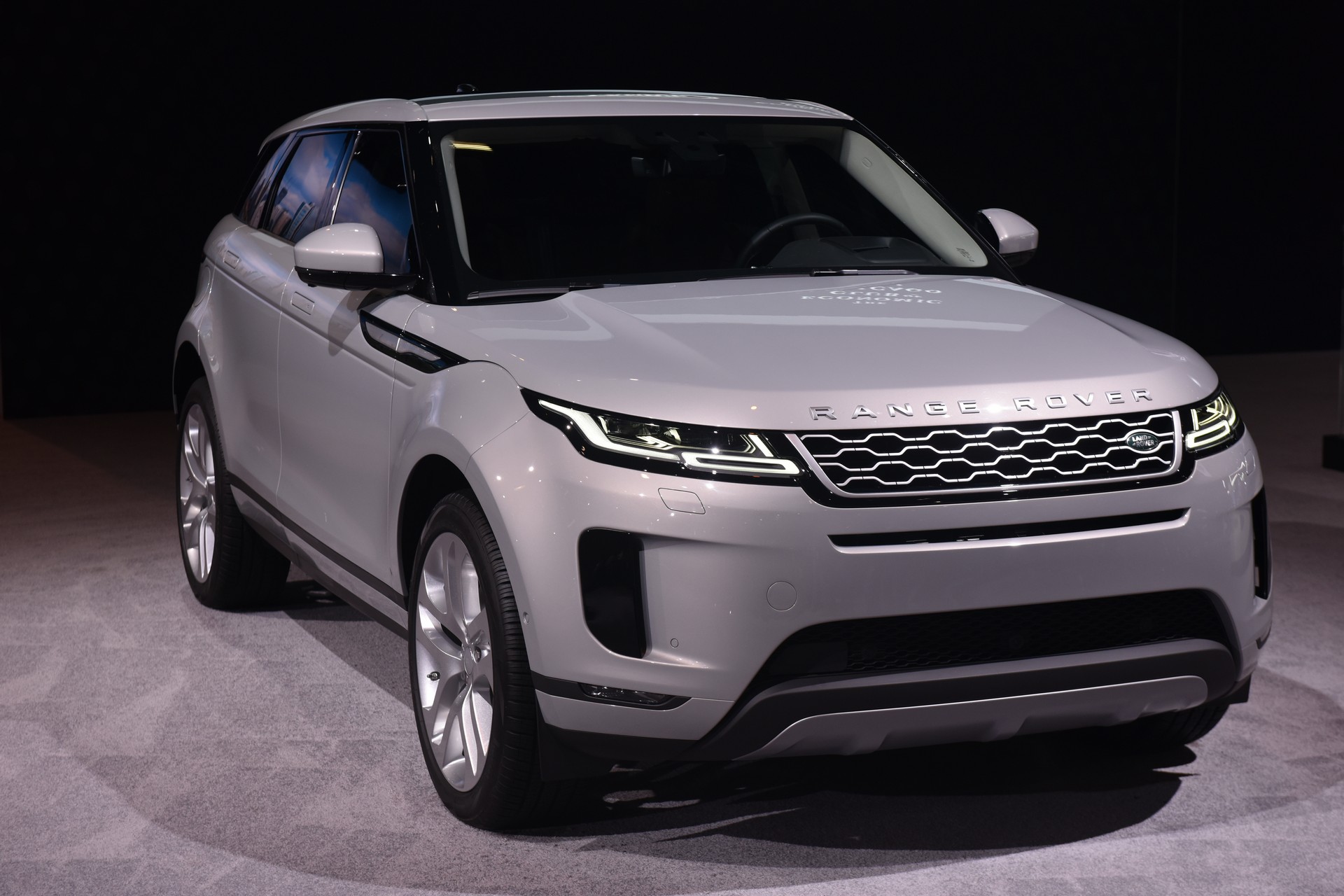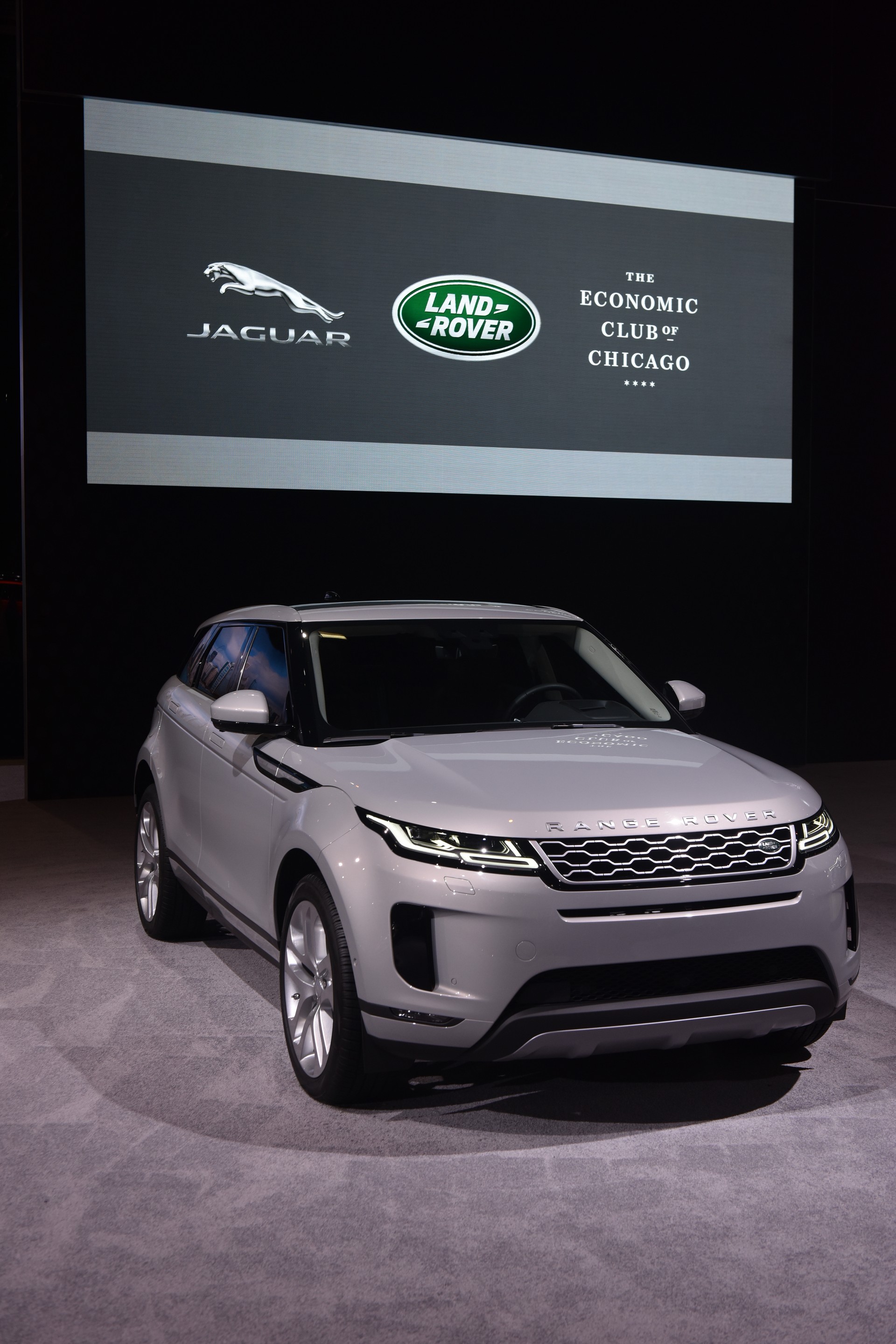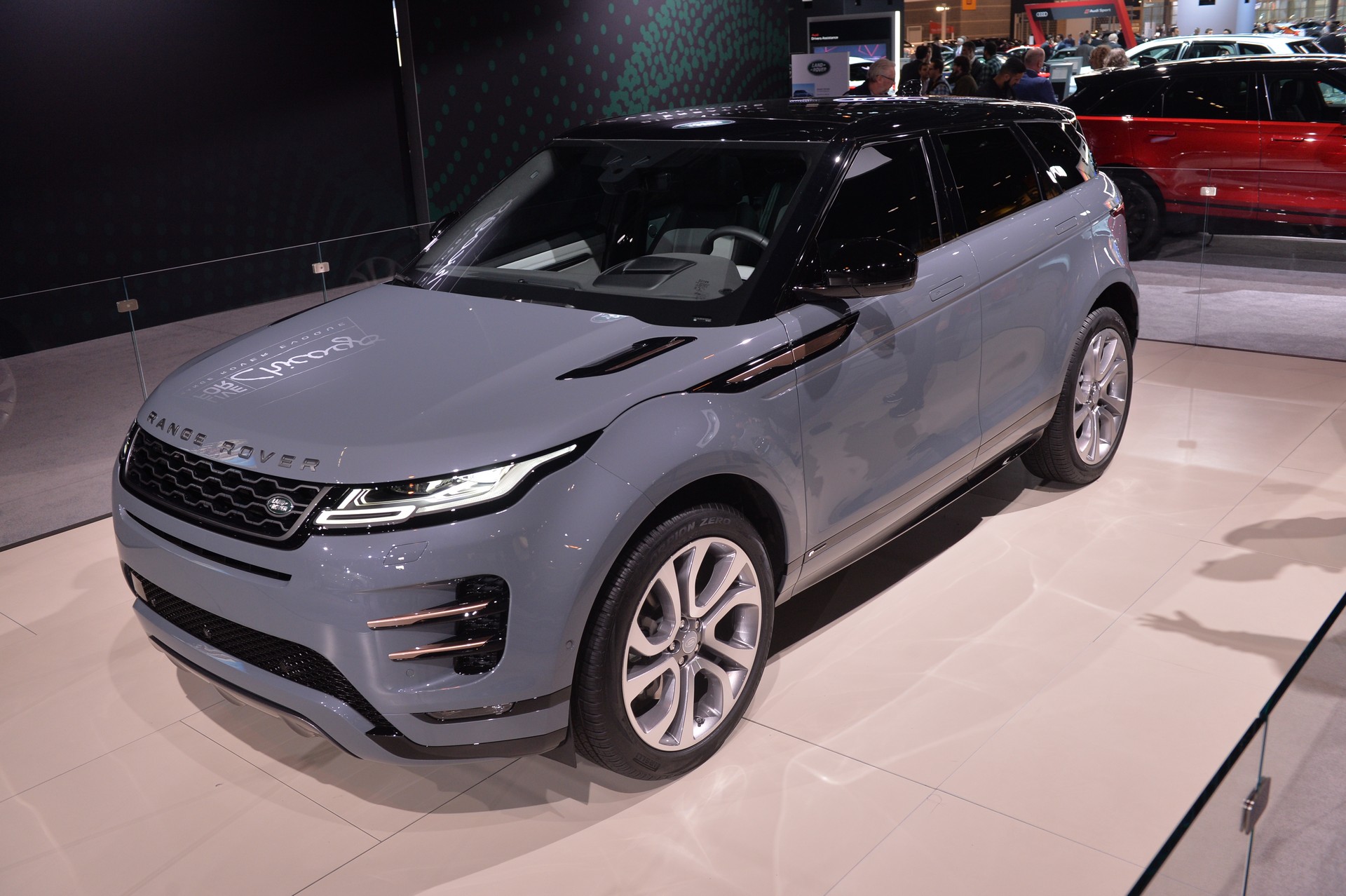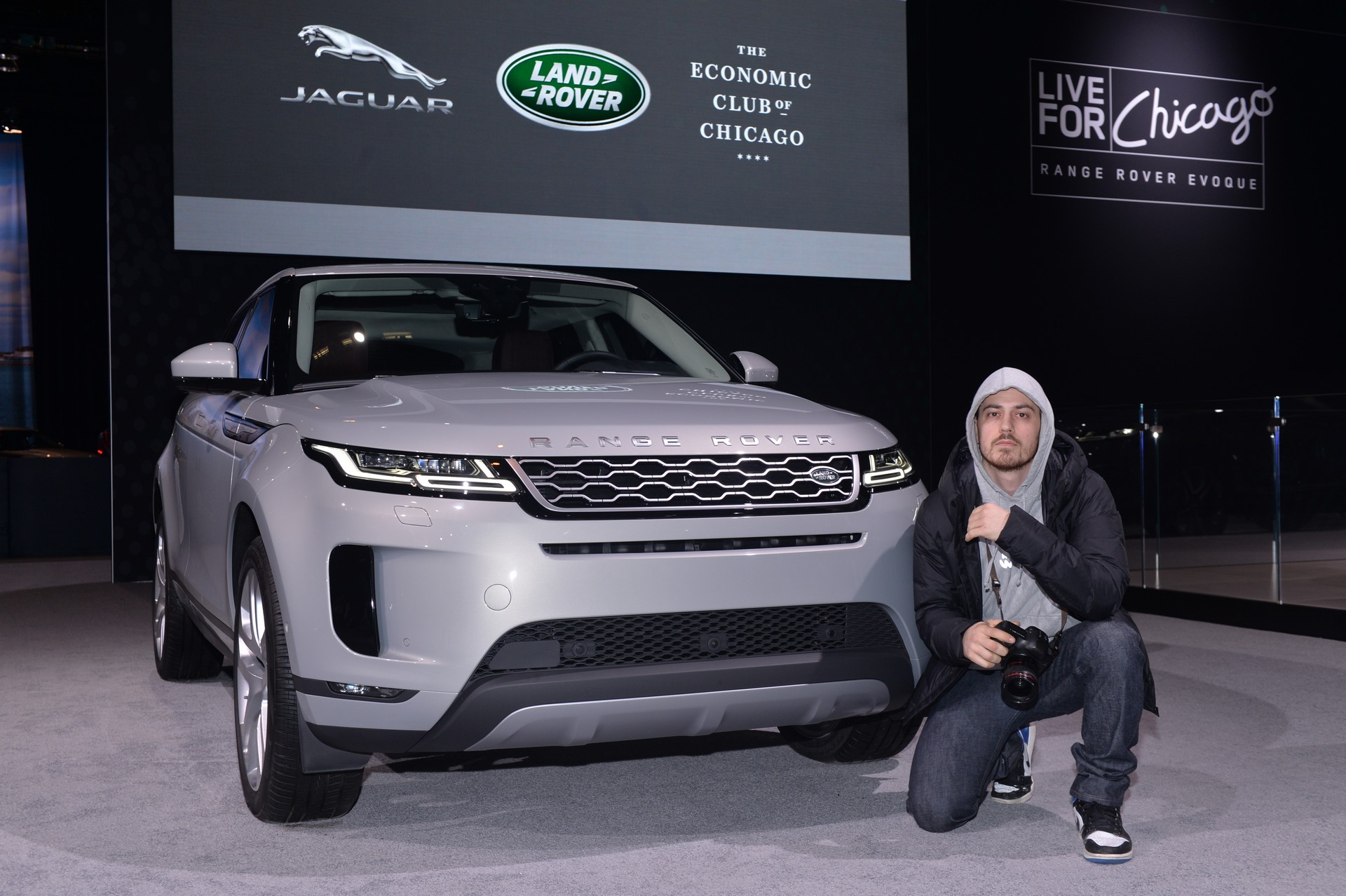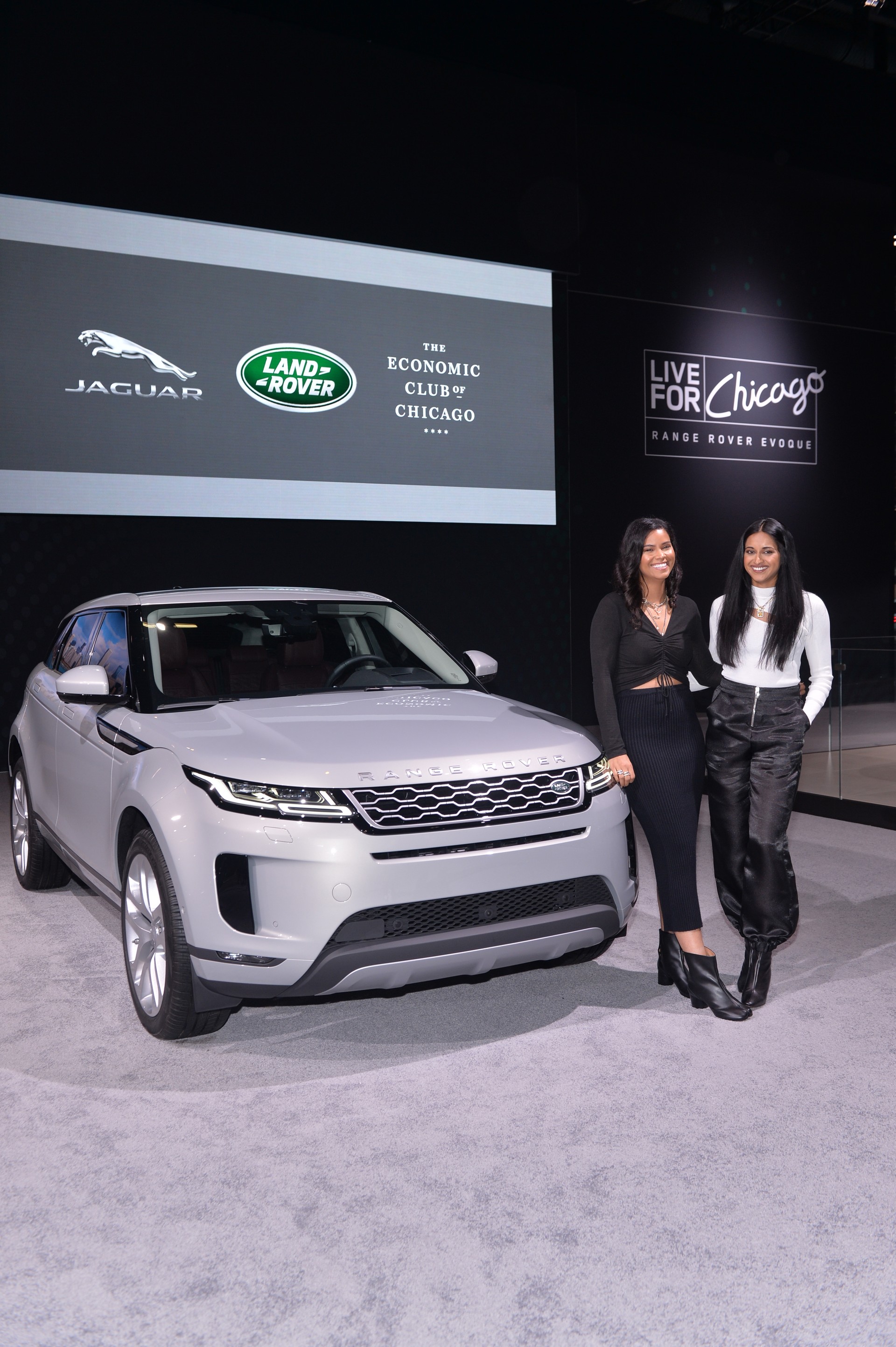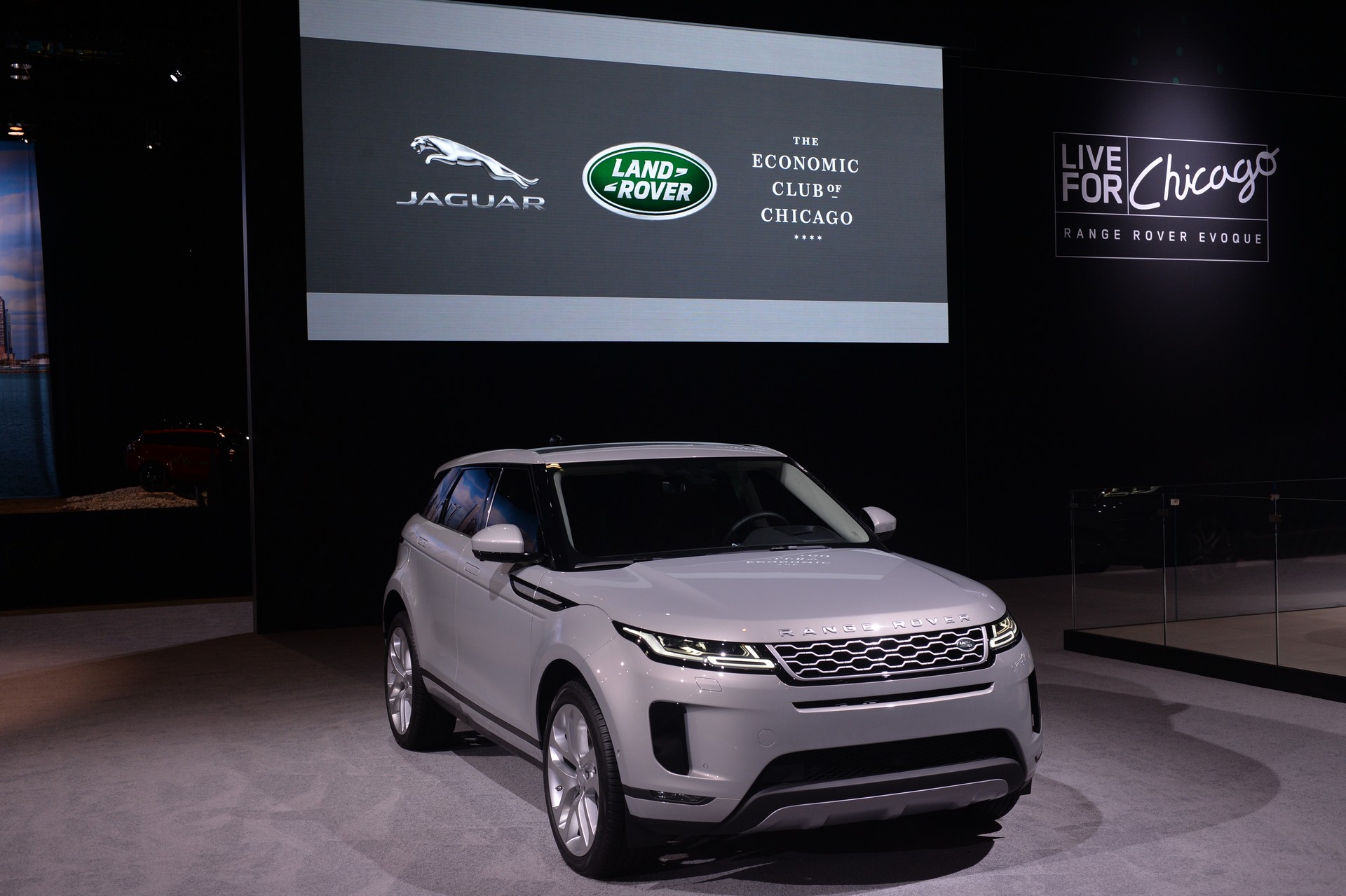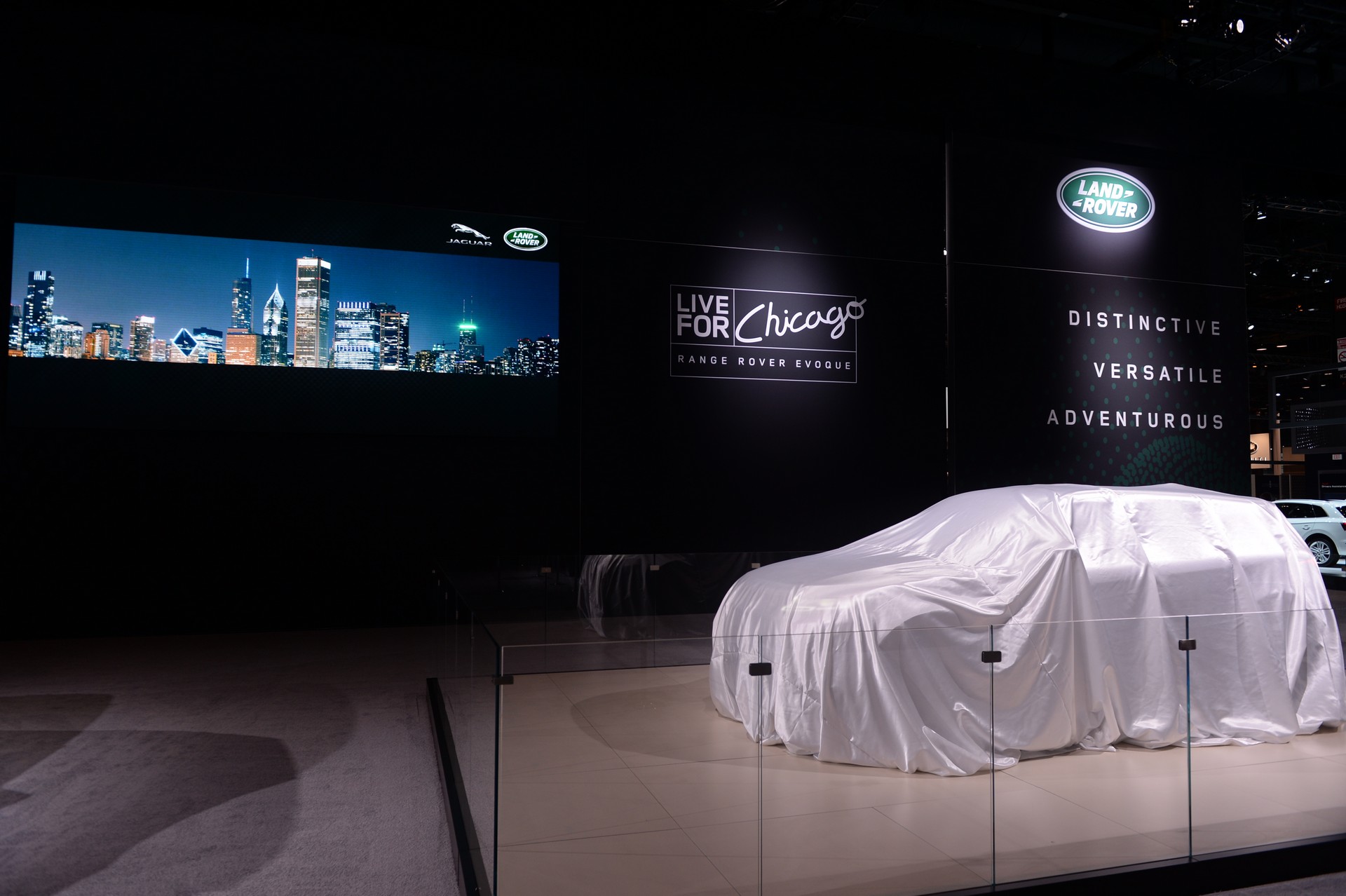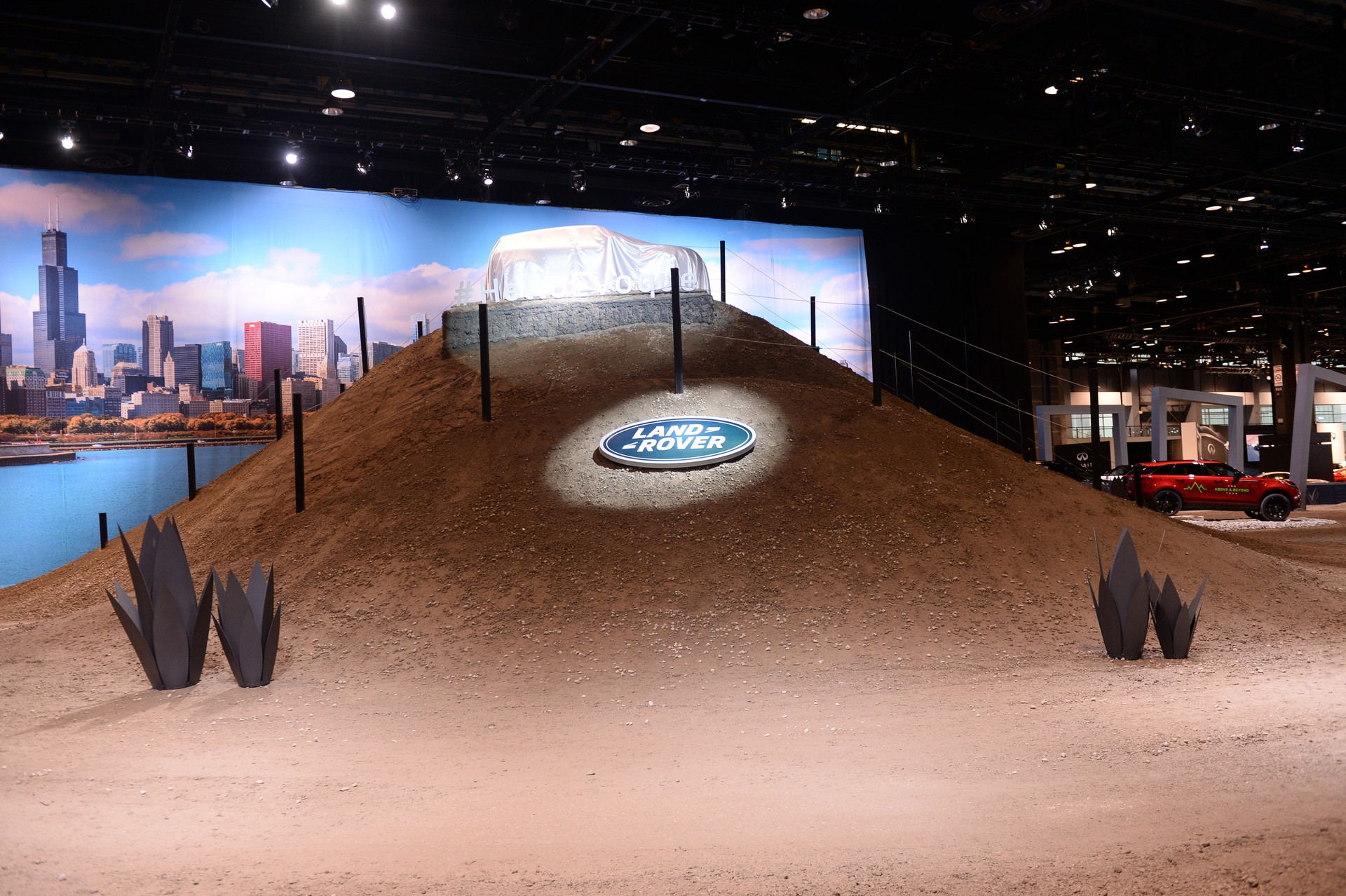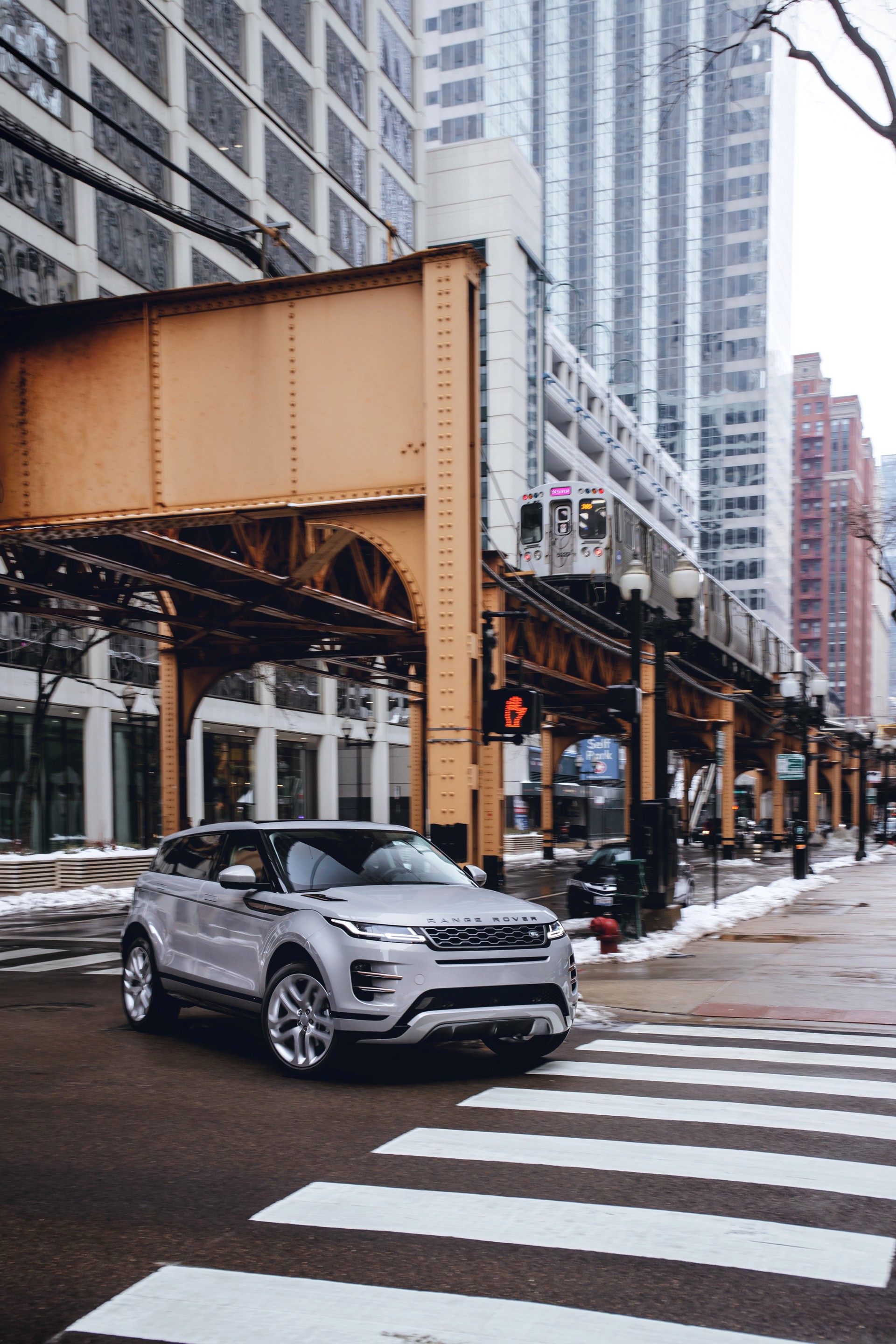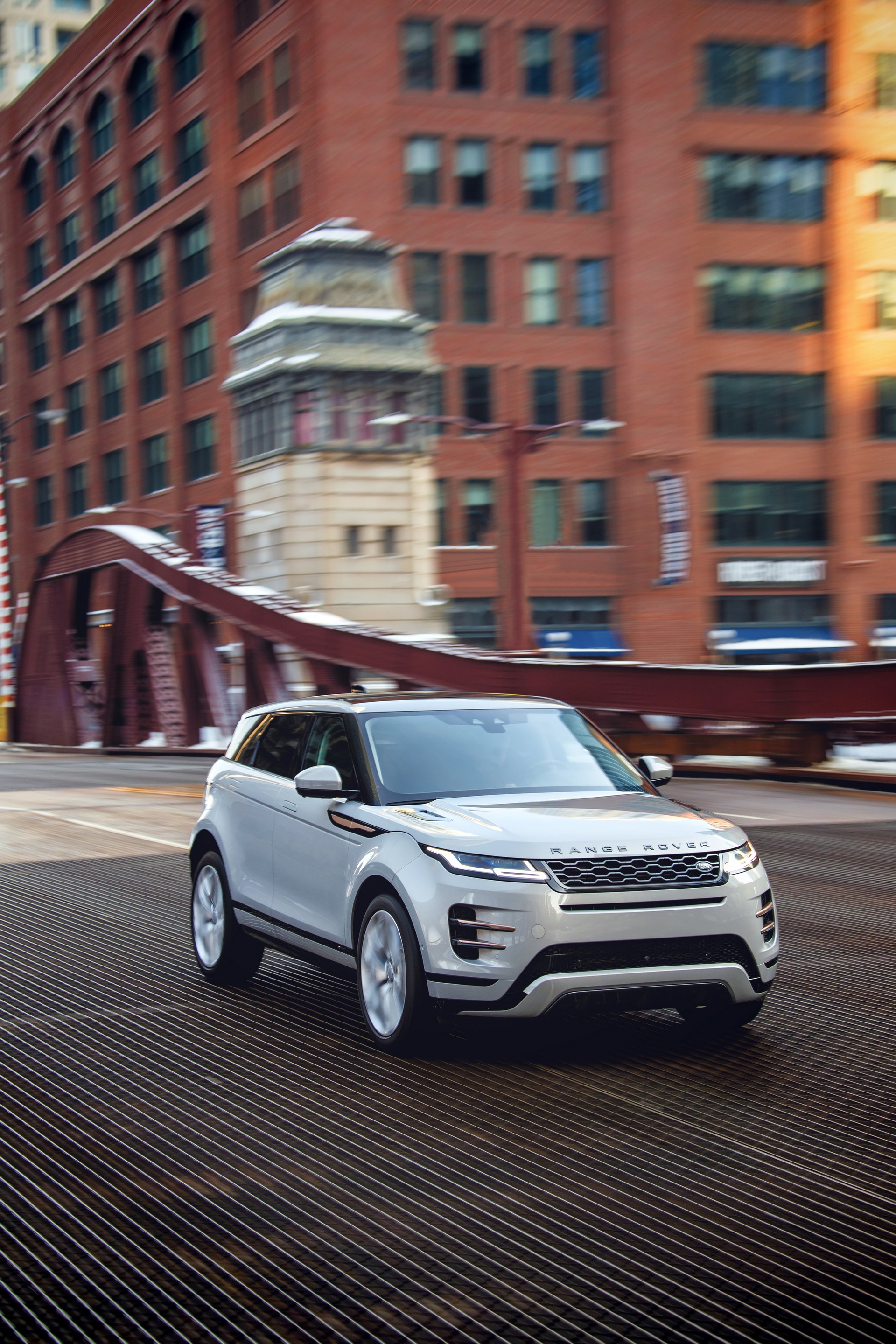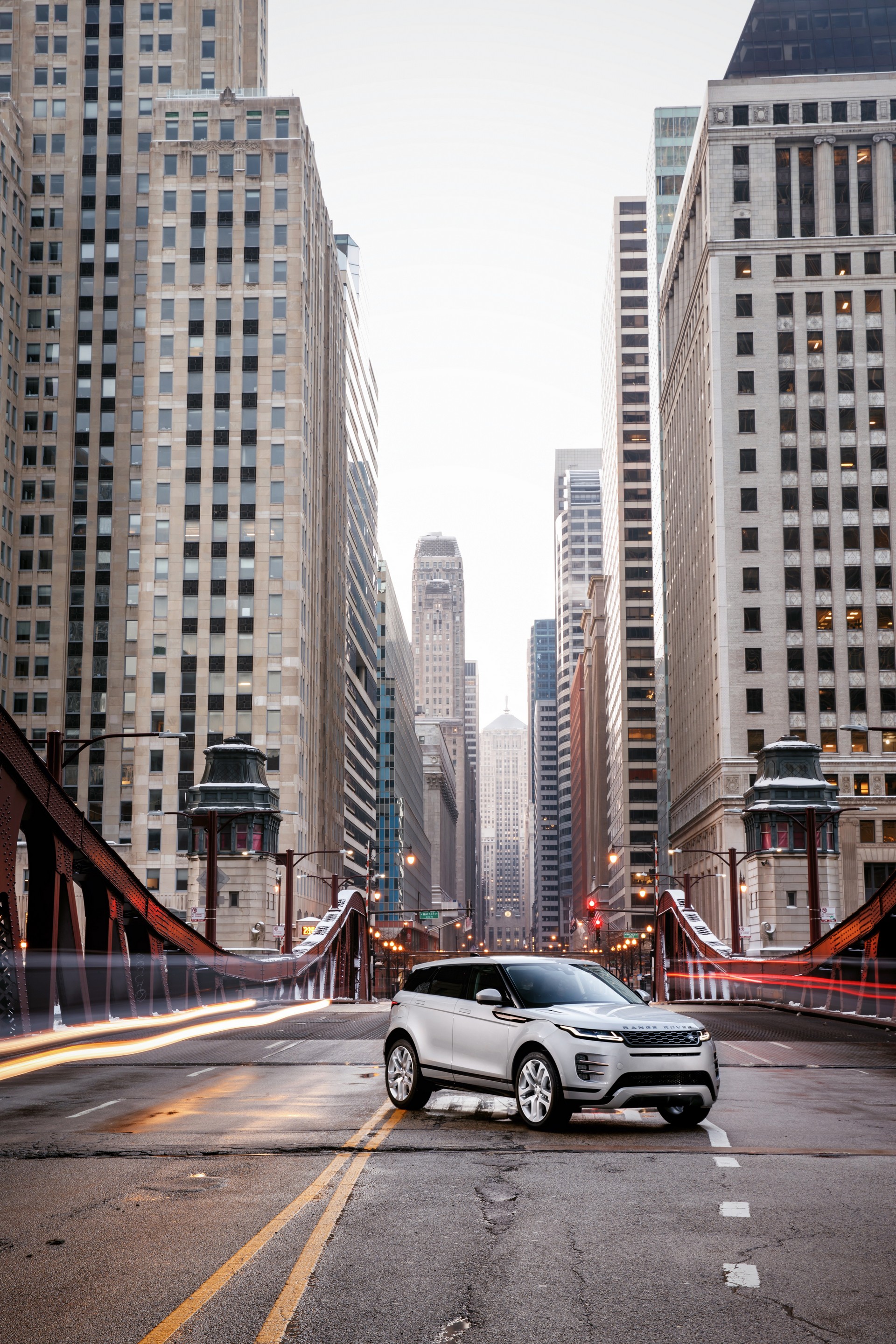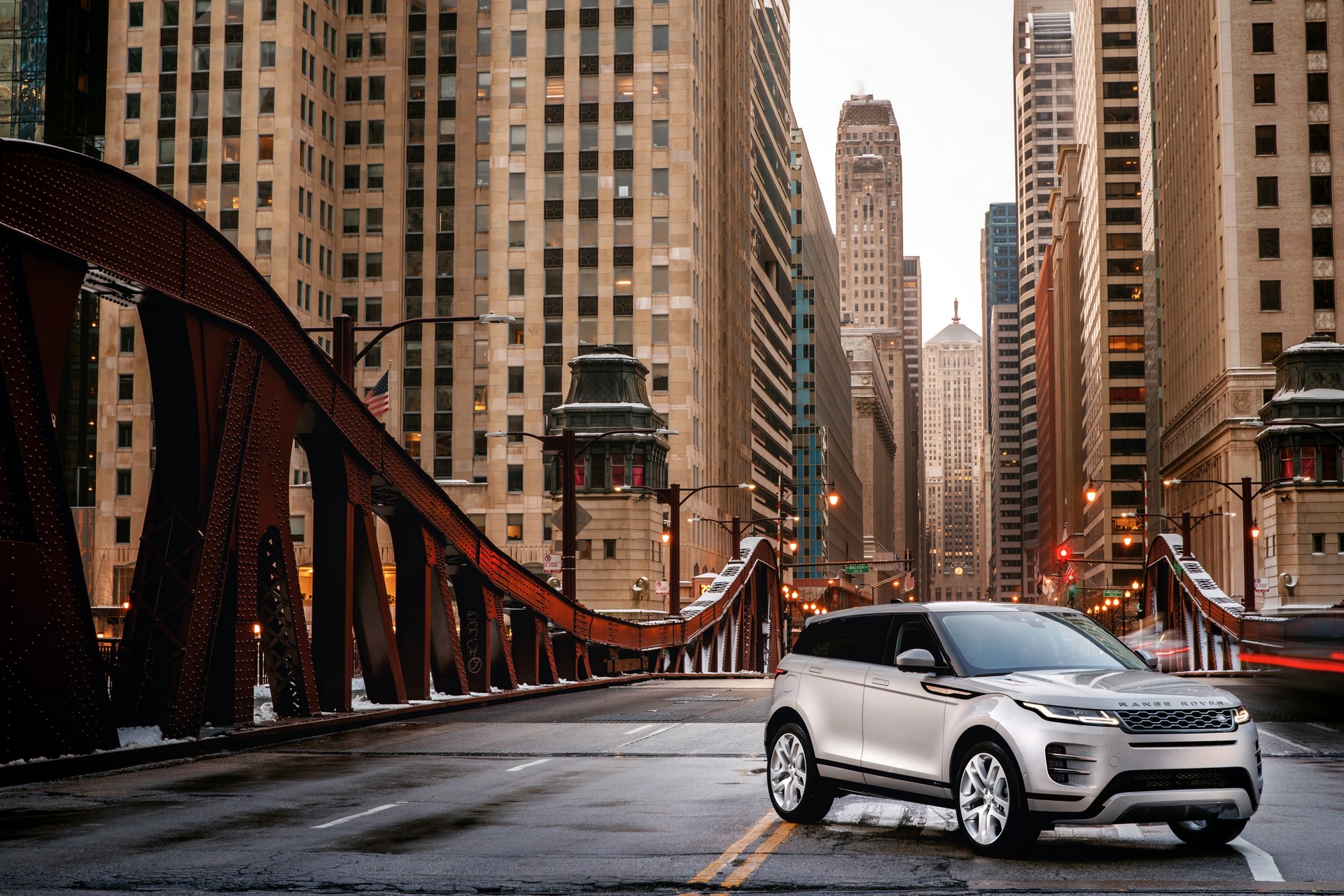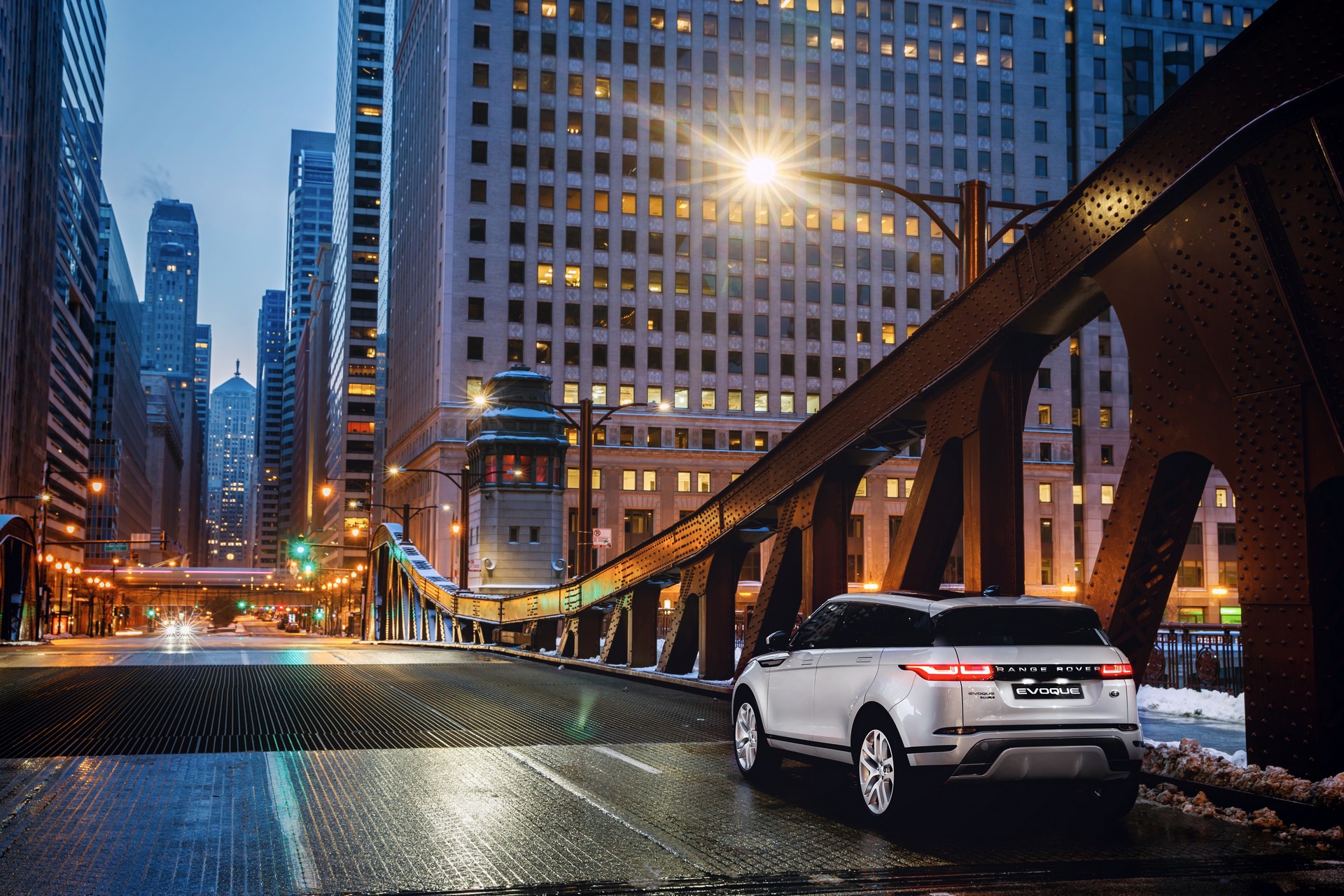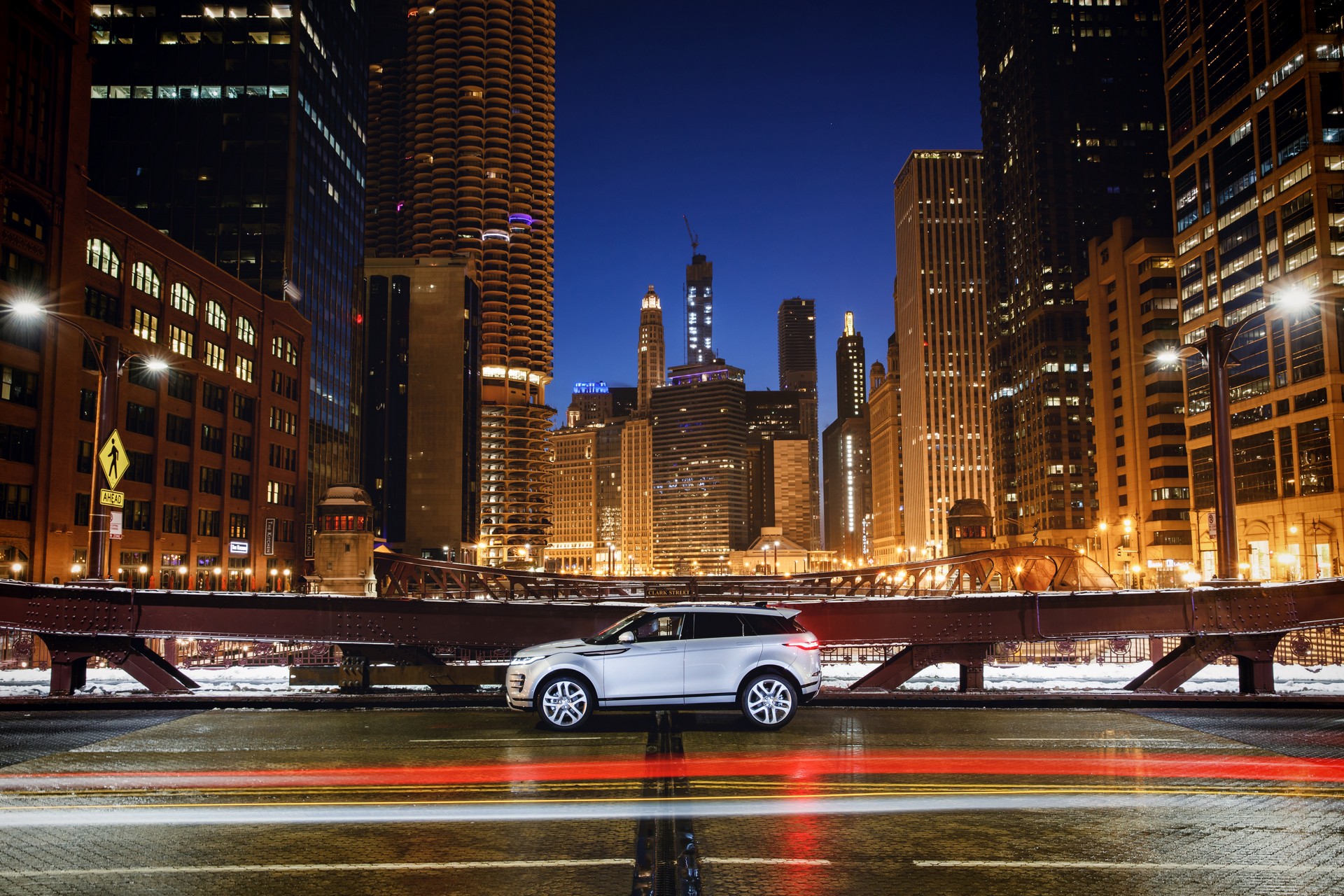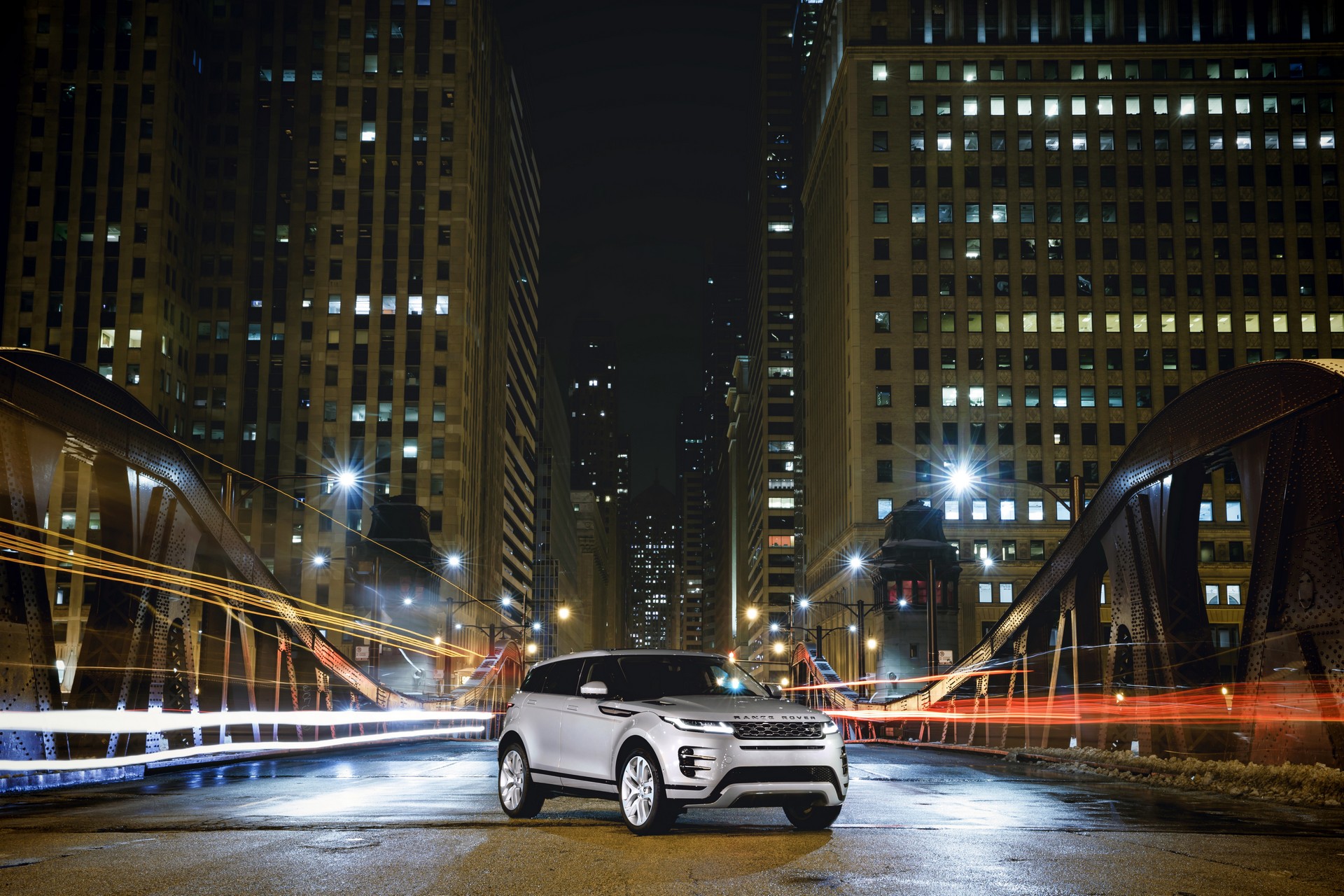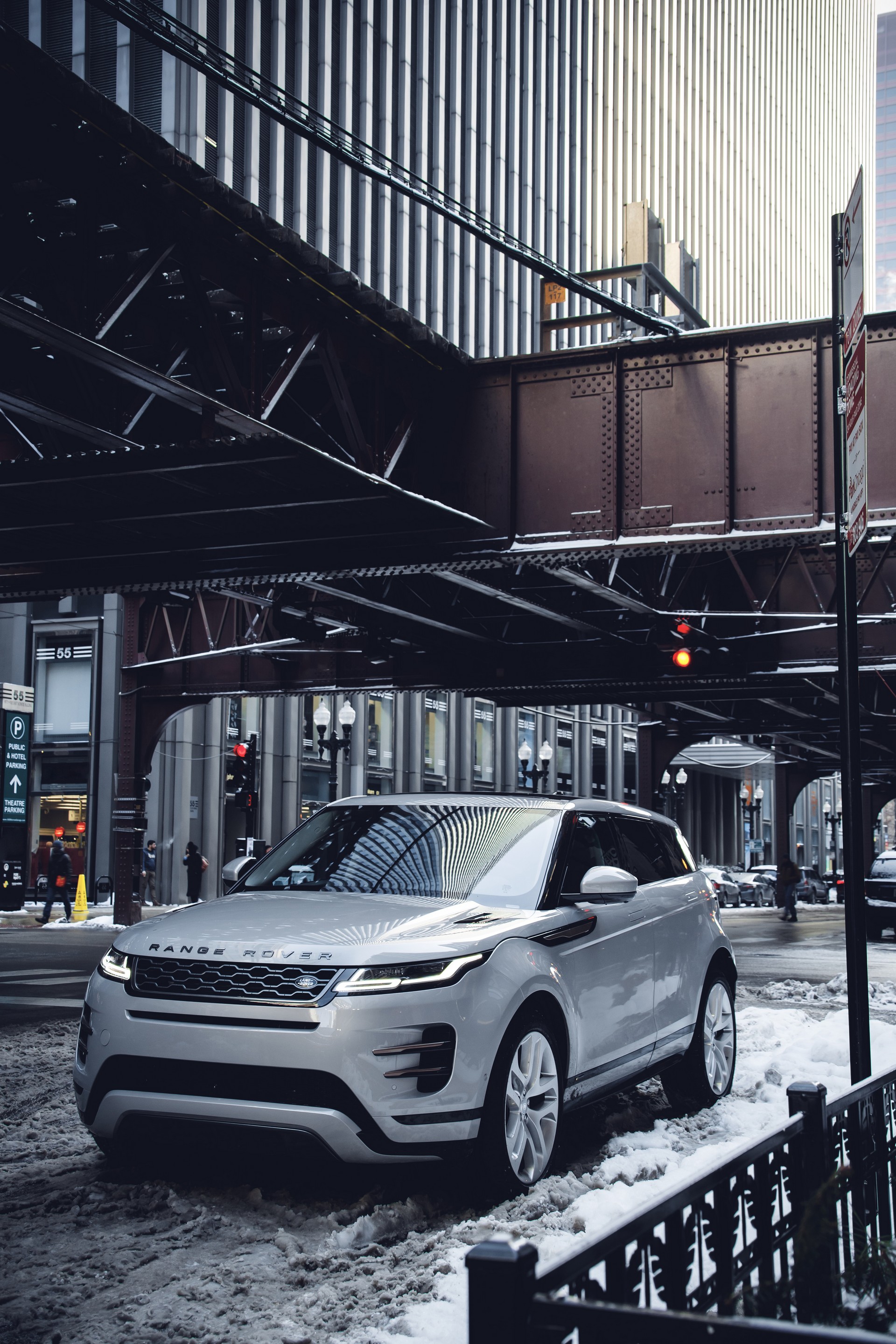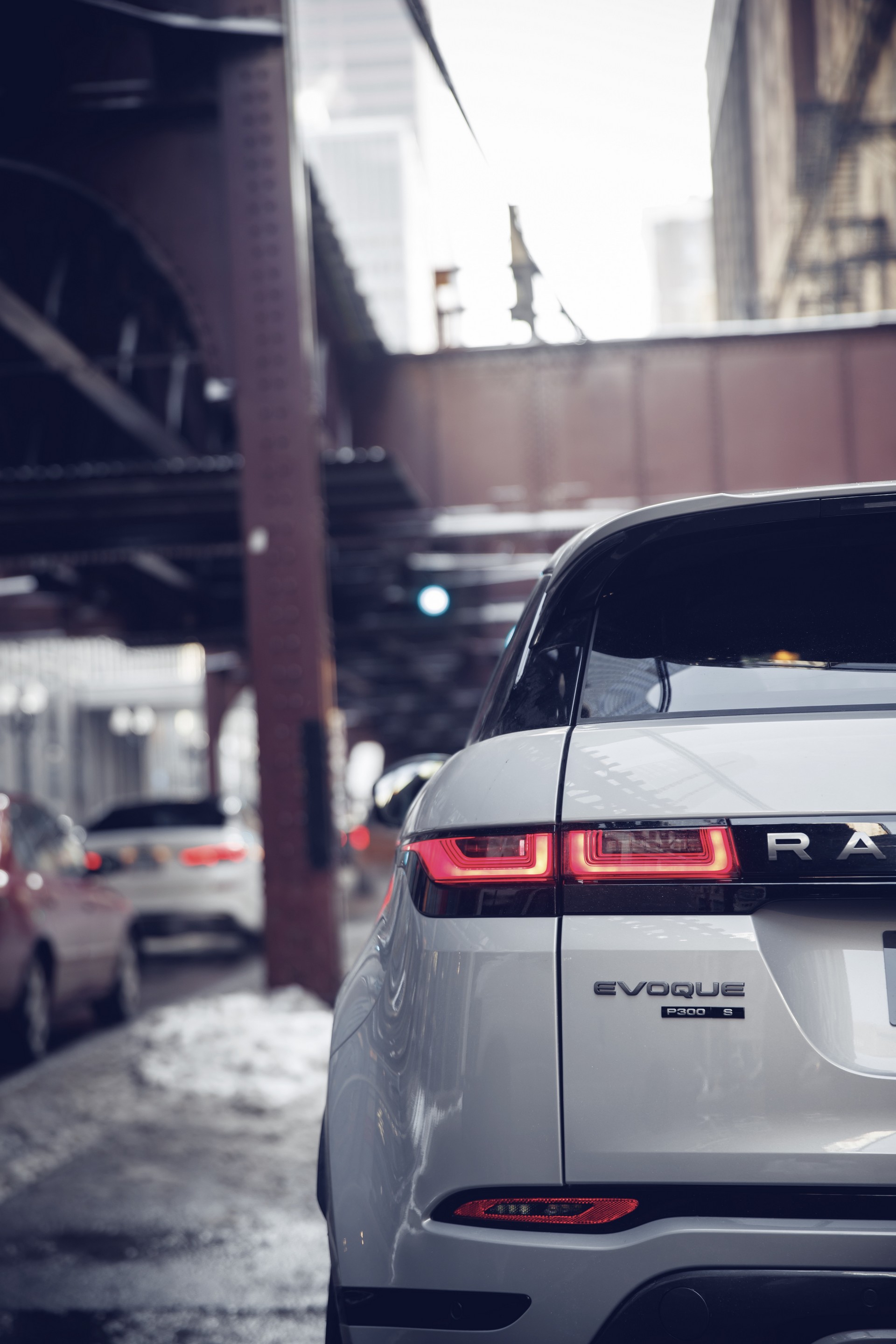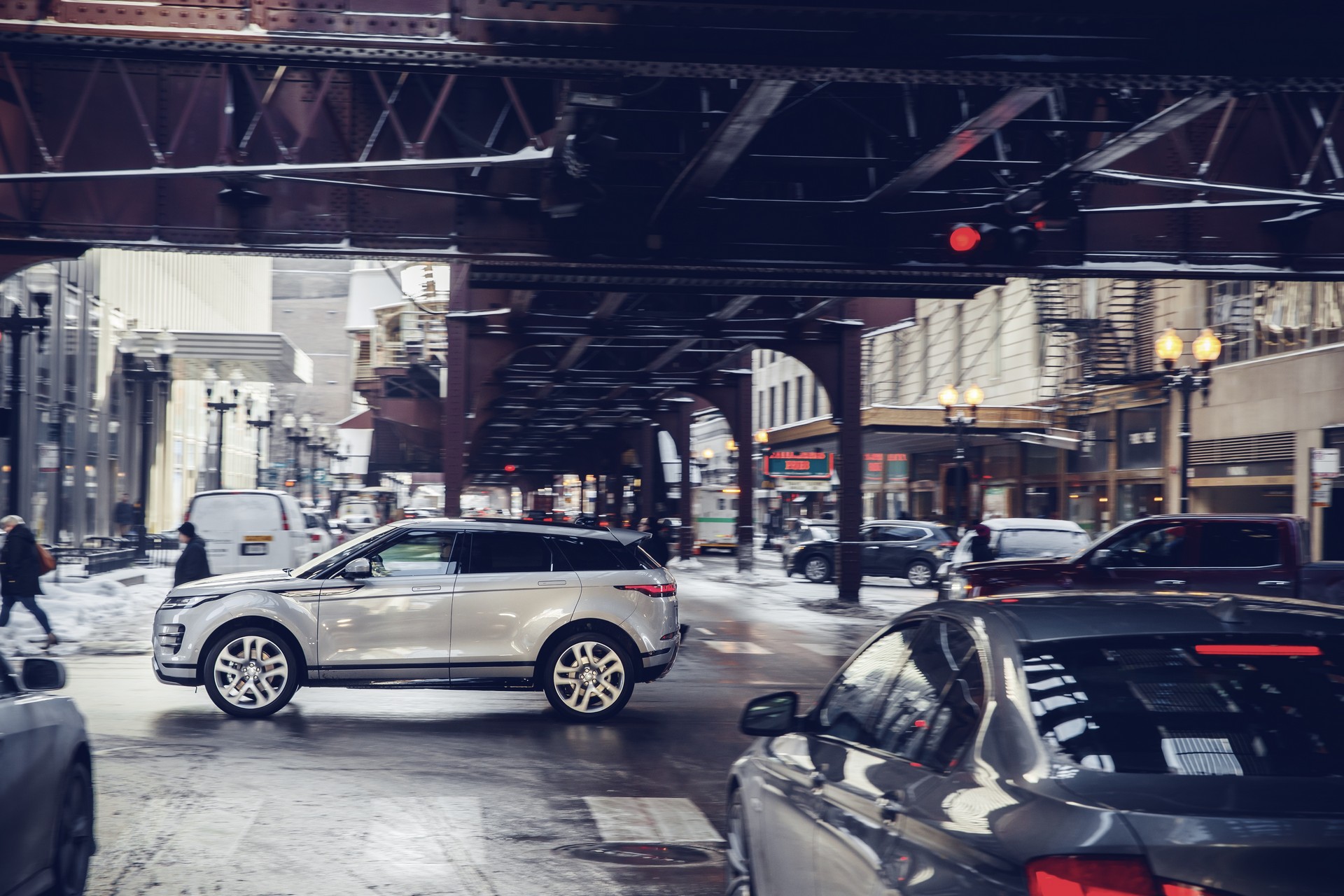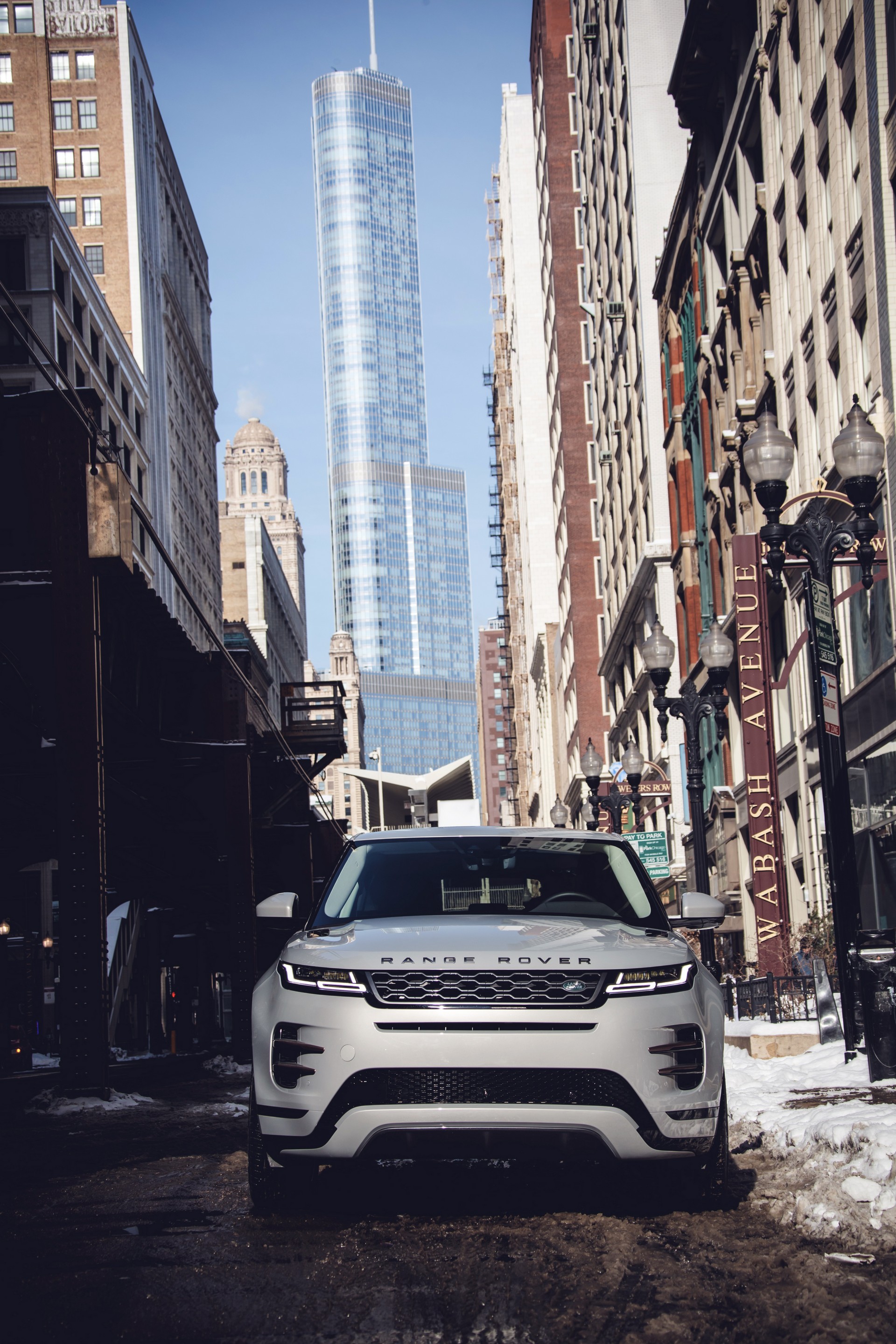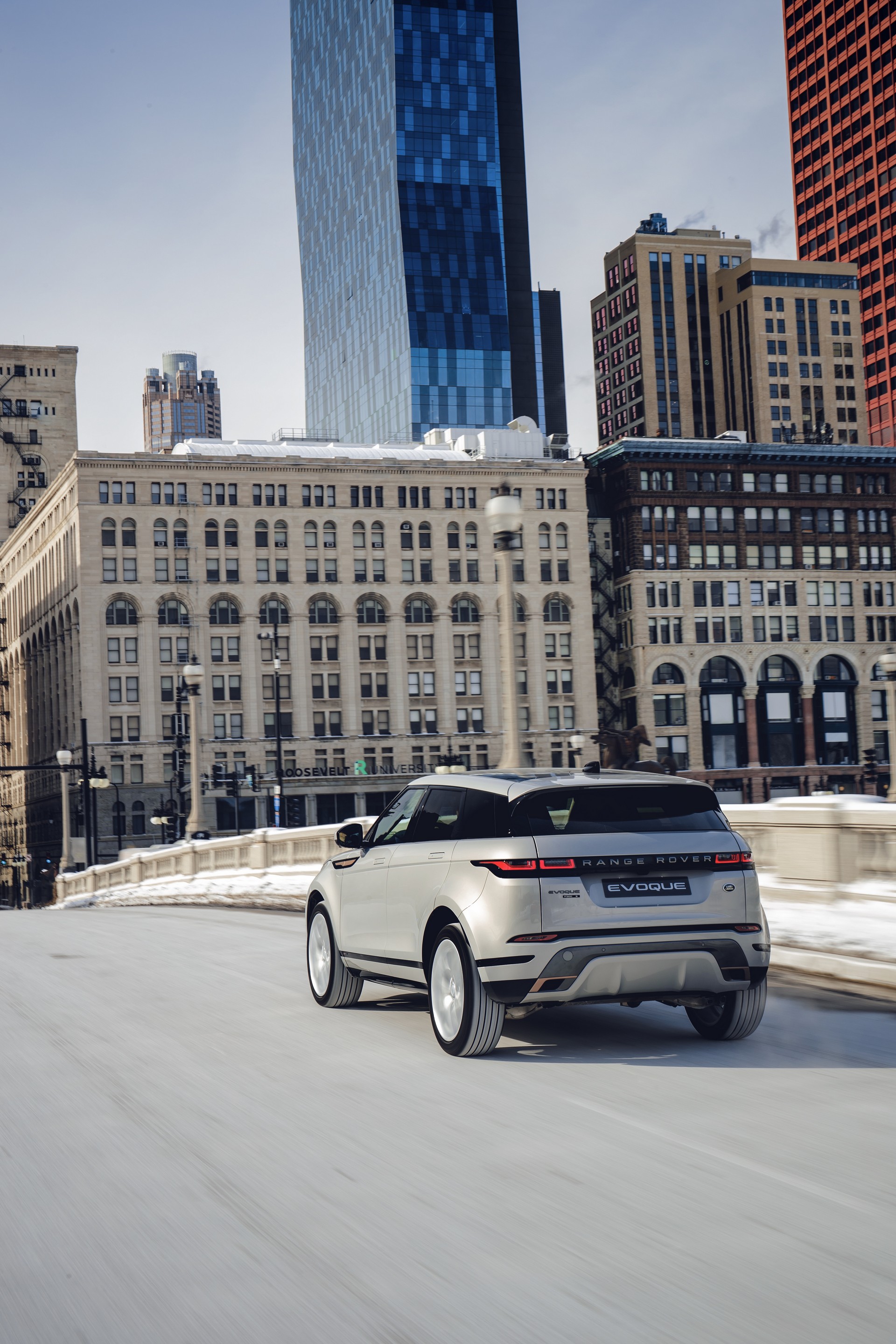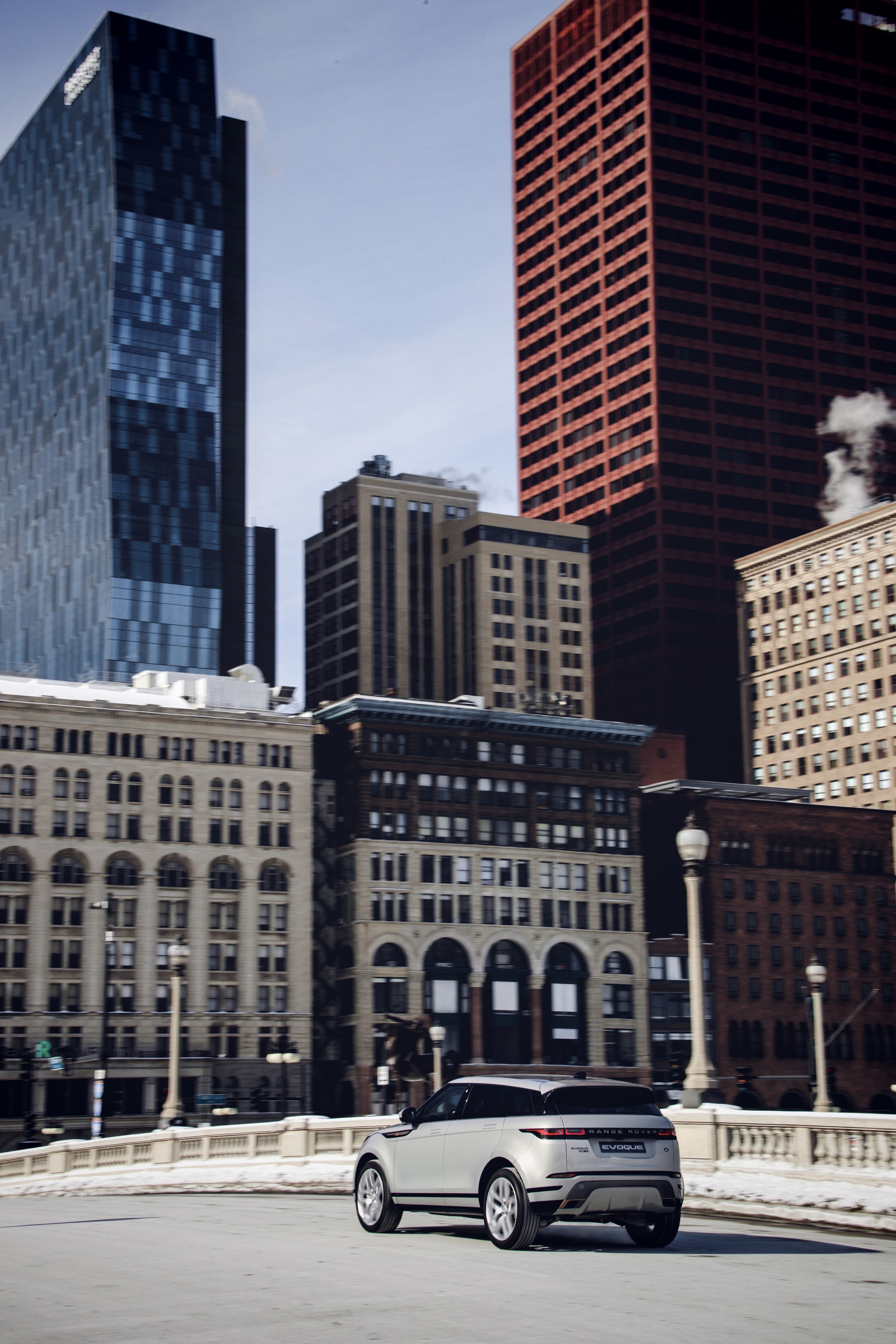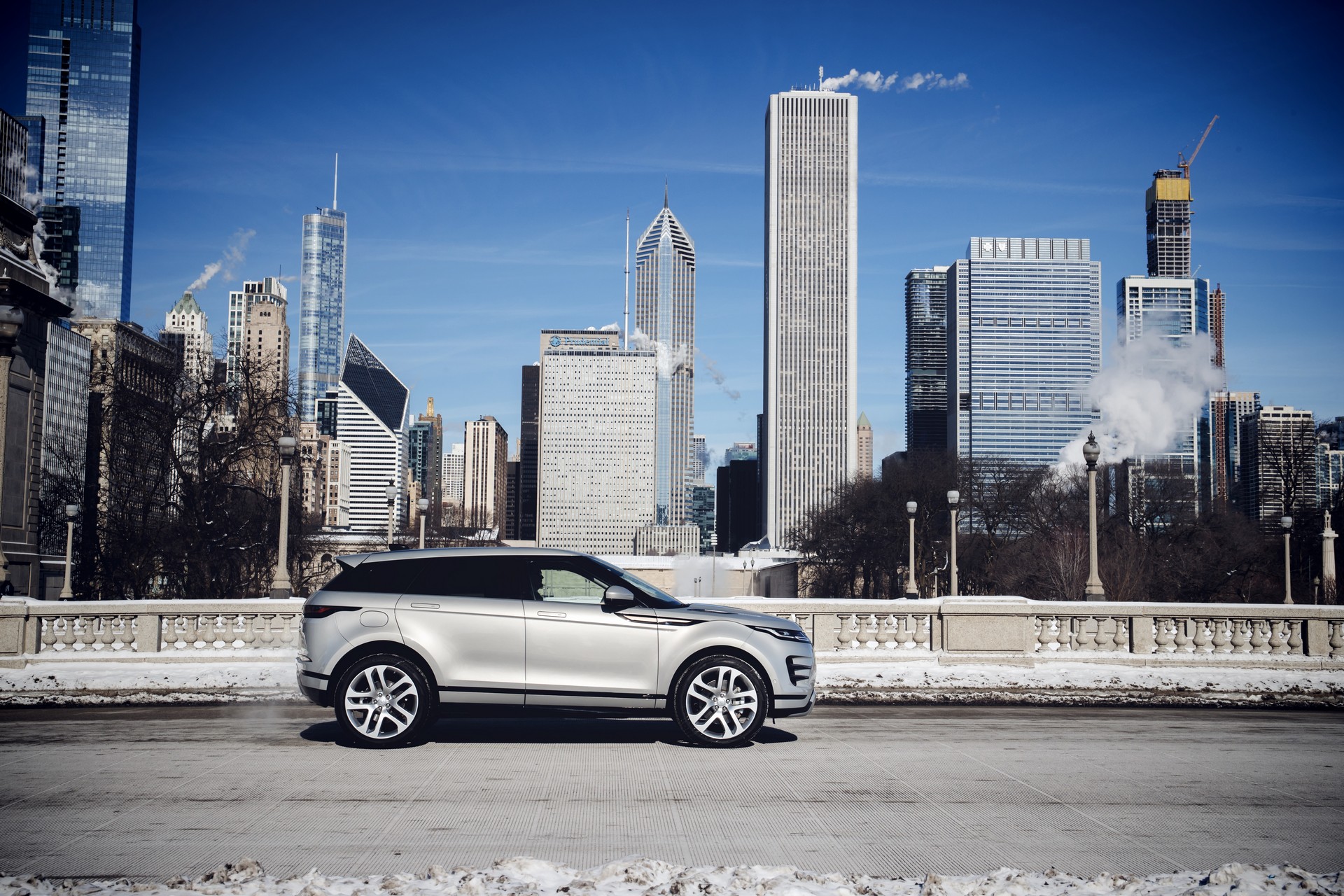Following its debut late last year, Range Rover has staged the US unveiling of the 2020 Evoque at the Chicago Auto Show.
Set to go on sale this spring, the 2020 Evoque features a stylish design that borrows a number of cues from the more expensive Range Rover Velar. Key highlights include slender LED headlights, power retractable door handles and optional 21-inch alloy wheels.
The interior allows draws inspiration from its larger sibling and the cabin is significantly more luxurious than before. Depending on the trim, the crossover can be equipped with premium leather upholstery, 16-way power front seats and an air ionization system. Customers can also order a 12.3-inch digital instrument cluster, a color head-up display and a Touch Pro Duo system with two 10-inch displays.
Thanks to the new Premium Transverse Architecture, the Evoque has a slightly longer wheelbase which allows for additional rear seat legroom. Luggage space also climbs to 50.5 cubic feet (1,430 liters) when the rear seats are folded down.
Pricing will start at $42,650 – excluding a $995 destination and handling fee – and the Evoque will be available in five different trims called S, SE, R-Dynamic S, R-Dynamic SE and R-Dynamic HSE. The company will also offer an Evoque First Edition which will be available exclusively for the first model year.
The S, SE and First Edition are powered by a turbocharged 2.0-liter four-cylinder engine that produces 246 hp (183 kW / 249 PS) and 269 lb-ft (364 Nm) of torque. It is connected to a nine-speed automatic transmission and a standard all-wheel drive system. This setup enables the crossover to accelerate from 0-60 mph (0-96 km/h) in 7.0 seconds, before hitting a top speed of 143 mph (230 km/h).
The R-Dynamic variants have a mild-hybrid powertrain that features a turbocharged 2.0-liter four-cylinder engine, an electric motor and a 48 volt lithium-ion battery. This setup allows the model to develop 296 hp (220 kW / 300 PS) and 295 lb-ft (400 Nm) of torque. Thanks to the extra power, the dash from 0-60 mph (0-96 km/h) is cut to 6.3 seconds. The top speed also climbs to 150 mph (241 km/h).





